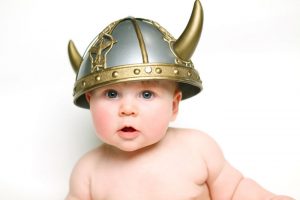Celtic Names For Boys And Girls
If your child has a Celtic heritage, it would make sense that you are looking for Celtic names.
Picking good Celtic names for your child is hard! There are so many to choose from!
Two things to consider when picking Celtic names:
- opt for names that are easy to pronounce. This is especially important for Celtic names because they’re so different from average names;
- Do make sure you understand the meaning and connotation of the name in different contexts.
For your convenience, the Celtic names are listed in alphabetical order. You can also choose Celtic names for boys, Celtic names for Girls, and Gender Neutral Celtic Names.
Contents
Celtic Names For Boys
Abbán
Abbán means “little abbot” and pronounced as AHBae-N.
Ádhamh
Ádhamh is a variation of Adam which means “man” or “to make”.
Aengus
Aengus is a variation of Aonghus which means “one strength”. Pronounced as IY-NGahS.
Ahearne
Ahearne means “owner of horses” and pronounced as EHH-ER-N.
Ailill
Ailill means “elf; beautiful” and pronounced as AELYihL. Ailill is a name that is used frequently in Irish legend.
Ailín
Ailín is an Irish variation of Alan which means “handsome, cheerful”.
Aindréas
Aindréas means “manly, masculine” and pronounced as ae-NDRiy-aa-Z.
Aindriú
Aindriú is a variation of Aindréas which means “manly, masculine”. Pronounced as AE-NDRiy-uw-.
Alaois
Alaois means “war; famous” and pronounced as AL-eesh.
Alastar
Alastar is a variation of Alexander which means “defending men”.
Alby
Alby is an anglicized masculine variation of Ailbhe which means “white”. Pronounced as AELBiy-.
Aled
Aled means “a child; offspring” and pronounced as A-lehd.
Allen
Allen means “handsome”.
Alun
Alun is a Welsh variation of Alan which means “handsome, cheerful”. Pronounced as A-leen or AEL-ahN. Alun is a name that appears in the Mabinogion, a collection of tales from Welsh myth.
Amhlaoibh
Amhlaoibh is an Irish variation of Olaf which means “ancestor’s relic”. Pronounced as ow-l-ee-bh.
Andras
Andras is a variation of Andreas which means “manly, masculine”. Pronounced as AENDRaeS.
Andreas
Andreas is a spelling variation of Aindréas which means “manly, masculine”. Pronounced as an-DREH-as.
Aneirin
Aneirin means “high-minded” or “noble” and pronounced as aa-N-EYRihN. Aneirin was the name of a famous 6th-century Welsh poet.
Aneurin
Aneurin is a spelling variation of Aneirin which means “high-minded” or “noble”. Pronounced as aeNYUHERahN.
Angus
Angus is an anglicized variation of Aonghus which means “one strength”. Pronounced as ANG-gahs.
Anraí
Anraí is an Irish variation of Henry which means “lord of the manor”. Pronounced as AENRAH-.
Aodh
Aodh means “fire; brightness; splendor” and pronounced as IY or AY. Aodh was a very popular name in early Ireland, being borne by numerous figures in Irish mythology and several high kings.
Aodhagán
Aodhagán is a diminutive variation of Aodh which means “fire; brightness; splendor”. Pronounced approximately as EY-Gae-N. 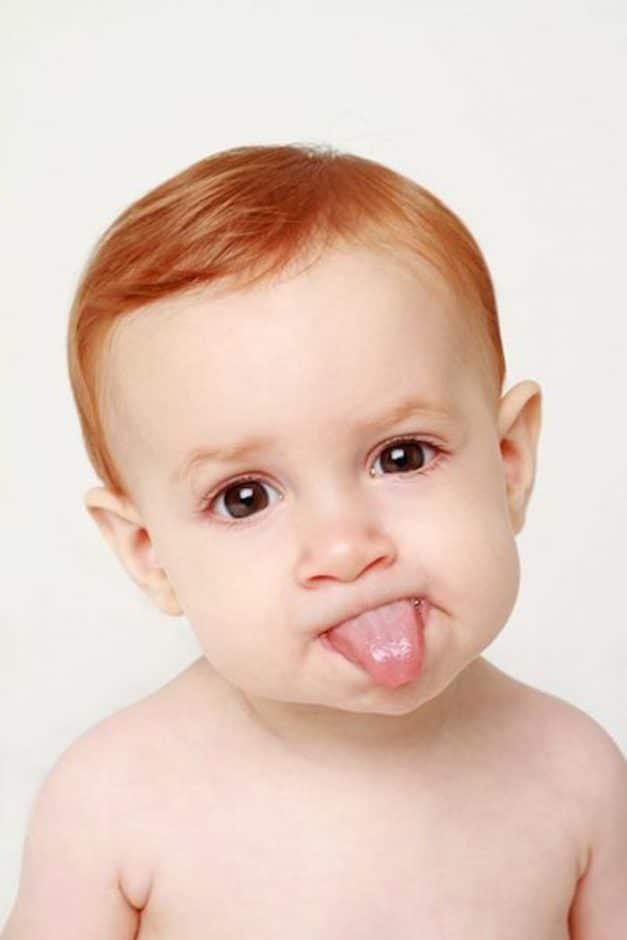
Aonghus
Aonghus means “one strength” and pronounced as AENGahS. Aonghus is the Irish god of love and youth and was also the name of an 8th-century Pictish king and several Irish kings.
Ardal
Ardal is an anglicized variation of Ardghal which means “high valor”. Pronounced as AHR-dahl.
Ardghal
Ardghal means “high valor” and pronounced as AHR-dahl.
Art
Art is a diminutive variation of Arthur which means “noble one; bear man”.
Arthur
Arthur means “noble one; bear man”. Arthur is a name of the shining head of the Knights of the Round Table.
Arwel
Arwel means “prominent” and pronounced as AARWehL.
Arwyn
Arwyn means “white, fair” or “muse” and pronounced as AARWihN.
Auryn
Auryn means “gold”.
Awstin
Awstin is a Welsh variation of Austin which means “august; dignified; holy”.
Bairre
Bairre is a diminutive variation of either Barrfhionn or Fionnbharr, both of which means “fair hair”. Pronounced approximately as BEH-R-.
Barra
Barra is a variation of Bairre which means “fair hair”. Pronounced as BAA-Raa- or BEY-R-aa-.
Barrfhionn
Barrfhionn means “fair hair” and pronounced as BAR-een.
Barrfind
Barrfind is an older variation of Barrfhionn which means “fair hair”.
Barry
Barry means “spear; fair headed; son of Harry” and pronounced as BAR-ee or BEHR-ee.
Bearach
Bearach is a spelling variation of Berach which means “sharp”.
Bedwyr
Bedwyr is an Arthurian Legend name and pronounced as BED-wir.
Berach
Berach means “sharp” and pronounced as BAHR-akh.
Berwyn
Berwyn means “white head” and pronounced as BER-WihN.
Bevan
Bevan means “son of Evan” and pronounced as BEHV-aeN or BiyVIY-N.
Bleddyn
Bleddyn means “wolf” and pronounced as BLEDH-in. Bleddyn was the name of an 11th-century king of Gwynedd and Powys.
Brádach
Brádach means “large-chested” and pronounced as BRA-dəkh.
Braden
Braden means “descendant of Bradan” or “salmon” and pronounced as BREY-DehN.
Brady
Brady means “descendant of Brádach” and pronounced as BRAY-dee.
Bran
Bran means “raven” and pronounced as BRAHN. Bran, in Irish legend, is a mariner who was involved in several adventures. In Welsh Legend, he is the son of the god Llyr.
Breandán
Breandán is an Irish Gaelic variation of Brendan which means “prince”. Pronounced as BREHNDaeN.
Brendan
Brendan means “prince”. Brendan was the name of a 6th-century Irish abbot who, according to legend, crossed the Atlantic and reached North America with 17 other monks.
Brendanus
Brendanus is a variation of Brendan which means “prince”.
Brennan
Brennan means “descendant of Braonán” and pronounced as BREHN-ahN.
Brian
Brian means “strength; power; force” and pronounced as BRYEE-ahn (Celtic) or BRIE-ahn (English). Brian was the name of the semi-legendary Irish king Brian Boru, who thwarted Viking attempts to conquer Ireland in the 11th century.
Brin
Brin is a spelling variation of Bryn which means “hill, mound”.
Brynmor
Brynmor means “great hill” and pronounced as BRIHNMaoR.
Cadell
Cadell means “battle” and pronounced as KAA-DehL-.
Cadfael
Cadfael means “battle prince” or “war chieftain” and pronounced as KEY-FihL-.
Cadfan
Cadfan means “battle peak” and pronounced as KEY-FaeN.
Cadoc
Cadoc means “battle” and pronounced as KAA-DahK. (Similar to Cadell.) Cadoc was the name of a 6th-century Welsh saint who was martyred by the Saxons.
Cadogan
Cadogan is an anglicized variation of Cadwgan which means “glory in battle”. Pronounced as KaaDowGAAN.
Cadwalader
Cadwalader means “leader of the battle”.
Cadwgan
Cadwgan means “glory in battle” and pronounced as kah-DO-gahn. Cadwgan, in Welsh myth, is the son of Iddon.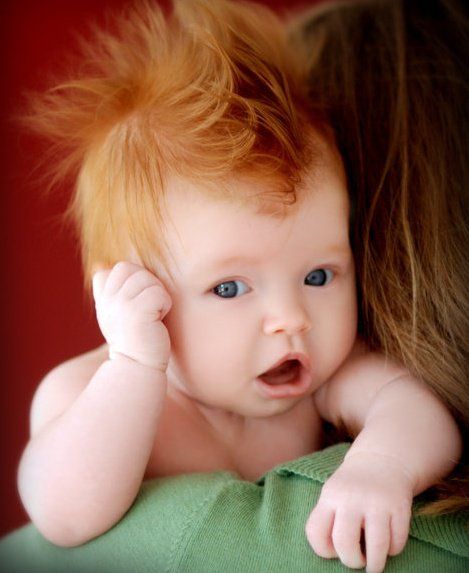
Caerwyn
Caerwyn means “white fort” and pronounced as KEHR-WihN.
Cahal
Cahal is an anglicized variation of Cathal which means “battle-mighty”. Pronounced approximately as KAO-HHaeL.
Cahir
Cahir is an anglicized variation of Cathair which means “battle man”. Pronounced as KAO-HHih-R.
Cainneach
Cainneach means “handsome” and pronounced as KA-nyahkh. (Similar to Allen.)
Cairbre
Cairbre means “charioteer” and pronounced as KAHR-bra. Cairbre was the name of two semi-legendary high kings of Ireland.
Calbhach
Calbhach means “bald” and pronounced as KAL-ah-wahkh.
Calvagh
Calvagh is an anglicized variation of Calbhach which means “bald”. Pronounced approximately as KAELVAHG-.
Caoimhín
Caoimhín is an Irish variation of Kevin which means “kind, gentle, handsome”. Pronounced approximately as K-AW-MHHIHN.
Caolán
Caolán means “slender” and pronounced as KaaowLAHN.
Caradoc
Caradoc is a variation of Caradog which means “beloved”. Pronounced as KAA-Raa-DahK.
Caradog
Caradog means “beloved” and pronounced as ka-RA-dawg. Caradog is the name of several figures in Welsh history and legend, including a 6th-century king of Gwent and a Knight of the Round Table in Arthurian romance.
Carbrey
Carbrey is an anglicized variation of Cairbre which means “charioteer”. Pronounced as KAHR-bree.
Carbry
Carbry is a spelling variation of Carbrey which means “charioteer”. Pronounced as KAHR-bree.
Cárthach
Cárthach means “loving” and pronounced as KAR-hahkh.
Carwyn
Carwyn means “blessed love” and pronounced as KAARWihN.
Cathair
Cathair means “battle man” and pronounced as KA-heer.
Cathal
Cathal means “battle-mighty” and pronounced as KA-hal.
Cathán
Cathán means “little battle” and pronounced as KAH-TH-N.
Cathaoir
Cathaoir is a spelling variation of Cathair which means “battle man”. Pronounced as KA-heer.
Ceallachán
Ceallachán is a variation of Ceallach which means “bright-headed” or “war; strife”. Pronounced as KEHL-ah-K-ahn.
Ceallagh
Ceallagh is a variation of Ceallach which means “bright-headed” or “war; strife”. (Similar to Ceallachán.)
Cearbhall
Cearbhall means “hacking with a weapon” and pronounced as KER-VahL or KIH–ER-VahL.
Cedric
Cedric means “bounty” and pronounced as SEHD-rik.
Cefin
Cefin is a Welsh variation of Kevin which means “kind, gentle, handsome”.
Celyn
Celyn means “holly” and pronounced as KEHL-ahN.
Cennétig
Cennétig means “armored head” or “misshapen head” and pronounced approximately as K-EH-nyeh-tyahj. Cennétig was the name of an Irish king, the father of Brian Boru.
Cianán
Cianán means “little ancient one” and pronounced as KYEH-NaN.
Ciarán
Ciarán means “little dark one; little dark-haired one” and pronounced as KIH-R-ae-N. Ciarán was the name of two Irish saints: one was the patron of the Kingdom of Munster and the other was the founder of a monastery in the 6th century.
Ciardha
Ciardha means “black” and pronounced as Keera or kyeh-rah.
Cillian
Cillian means “church” or “war; strife” and pronounced as KIHL-YaeN or K-LYaeN.
Cillín
Cillín is a variation of Cillian which means “church” or “war; strife”. Pronounced approximately as SIHL-N.
Cináed
Cináed means “born of fire” and pronounced as KIN-ahj.
Cionaodh
Cionaodh is a modern variation of Cináed which means “born of fire”. Pronounced approximately as KYUN-ee.
Cledwyn
Cledwyn means “harsh and pure” and pronounced as KLEHDWihN.
Cóemgein
Cóemgein is an original Irish variation of Kevin which means “kind, gentle, handsome”. Pronounced as KEE-veen or KWEE-vin.
Coilean
Coilean means “whelp, puppy” and pronounced as KOY-LIYAHN.
Coleman
Coleman is a variation of Colmán which means “dove”. Pronounced as KOWL-MahN.
Colin
Colin is an anglicized variation of Coilean which means “whelp, puppy”. Pronounced as KAHL-in (Celtic) or KOW-LihN (English).
Colm
Colm is a spelling variation of Colum which means “dove”.
Colmán
Colmán is a variation of Colum which means “dove”. Pronounced as KOWLMAHN. Colmán was the name of a large number of Irish saints.
Colum
Colum means “dove”.
Columban
Columban means “dove” or “white” and pronounced as Kah-LAHM-BahN.
Colwyn
Colwyn is a place-name and pronounced as KOWLWihN. Colwyn is a river in northern Wales.
Comgal
Comgal is a diminutive variation of Comhghall which means “joint pledge” or “co-hostage”.
Comgall
Comgall is a spelling variation of Comgal which means “joint pledge” or “co-hostage”.
Comgan
Comgan is an anglicized variation of Comhghán which means “born together”.
Comhghall
Comhghall means “joint pledge” or “co-hostage” and pronounced as KOWaa-L.
Comhghán
Comhghán means “born together” and pronounced as comgan.
Conall
Conall means “mighty” or “strong wolf” and pronounced as KaaN-aa-L. Conall is the name of several characters in Irish legend including the hero Conall Cernach.
Conan
Conan means “little wolf” and pronounced as KOWNaeN. Conan was the name of an illustrious seventh-century Irish saint, bishop of the Isle of Man.
Conchobhar
Conchobhar is an original Irish variation of Conor which means “dog lover; high desire”. Pronounced approximately as KAANK-AWBHHAAR.
Conchúr
Conchúr is a modern variation of Conchobar which means “dog lover; high desire”. Pronounced as kro-KHOOR or KUW-nah-khoor.
Conleth
Conleth means “chief and lord” or “chaste fire” and pronounced approximately as KAANLIY-TH. 
Conley
Conley is an anglicized variation of Conleth which means “chief and lord” or “chaste fire”. Pronounced as KAANLiy-.
Conn
Conn is a diminutive variation of Connor which means “dog lover; high desire”. Pronounced as KAAN or KOHN.
Connor
Connor is a spelling variation of Conor which means “dog lover; high desire”.
Conor
Conor means “dog lover; high desire” and pronounced as KAAN-ahR. . Conor was the name of several Irish kings.
Conrí
Conrí means “wolf king”.
Corentin
Corentin means “hurricane” and pronounced as kor-en-TAN.
Cormac
Cormac means “son of charioteer; impure son” and pronounced as KAORMaeK. Cormac was the name of a 3rd-century king of Ireland.
Cowal
Cowal is an anglicized variation of Comhghall which means “joint pledge” or “co-hostage”.
Críostóir
Críostóir is an Irish variation of Christopher which means “bearing Christ”. Pronounced as KRihST-er.
Cuán
Cuán means “little wolf” or “little hound” and pronounced as KuWahn.
Cuimín
Cuimín means “bent, crooked”.
Culhwch
Culhwch means “hiding place of the pig” and pronounced as KEEL-hookh. Culhwch, in Welsh legend, is the lover of Olwen the daughter of the giant Yspaddaden (This tale appears in the Mabinogion, a collection of tales from Welsh myth).
Cystennin
Cystennin is a Welsh variation of Constantine which means “steadfast; constant”. Pronounced as KihSTEHN-ahN.
Dafydd
Dafydd is a Welsh variation of David which means “beloved; favorite” or “friend”. Pronounced as DAAV-ih-TH. Dafydd was the name of a 13th-century Welsh ruler and a 14th-century poet.
Dai
Dai means “to shine” or “friend” and pronounced as DAY.
Dáibhí
Dáibhí is an Irish variation of David which means “beloved; favorite” or “friend”. Pronounced approximately as DEY-B-iy.
Dáire
Dáire means “fertile; fruitful” and pronounced as DAW-ra. Dáire is the name of many figures in Irish legend, including the Ulster chief who started the war between Connacht and Ulster as told in the Irish epic ‘The Cattle Raid of Cooley’.
Dáithí
Dáithí means “swift” or “friend” and pronounced as DAH-hee.
Dálach
Dálach means “assembly man” and pronounced approximately as DAHLAEK-.
Daley
Daley means “descendant of assembly” and pronounced as DAY-lee.
Daly
Daly is a spelling variation of Daley which means “descendant of assembly”. Pronounced as DAY-lee.
Damhán
Damhán means “fawn” and pronounced as DaeM-aeN.
Daragh
Daragh is a variation of Darach which means “oak tree”. Pronounced as DAAR-aa-.
Darragh
Darragh is a spelling variation of Daragh which means “oak tree”.
Deasún
Deasún is an Irish variation of Desmond which means “from South Munster”. Pronounced approximately as DIY-S-N.
Declan
Declan means “full of goodness” and pronounced as DEH-KLaeN.
Deiniol
Deiniol is a Welsh variation of Daniel which means “God is my judge”. Pronounced approximately as D-IHNYAHL.
Delwyn
Delwyn means “pretty and white” and pronounced as DEHLWihN.
Deniel
Deniel is a Breton variation of Daniel which means “God is my judge”. Pronounced as DEHNYehL.
Dermot
Dermot is an anglicized variation of Diarmaid which means “without envy”.
Desmond
Desmond means “from South Munster” and pronounced as DEHZMahND.
Dewey
Dewey is a Welsh variation of David which means “beloved; favorite” or “friend”. (Similar to Dafydd.) Pronounced as DUW-iy-.
Dewi
Dewi is a spelling variation of Dewey which means “beloved; favorite” or “friend”. Dewi was the name of the patron saint of Wales.
Dewydd
Dewydd is an Old Welsh variation of David which means “beloved; favorite” or “friend”.
Diarmaid
Diarmaid means “without envy” and pronounced as Dih-RMihD or JHih-RMihD. Diarmaid was the name of several ancient Irish kings and is the name of a warrior who became the lover of Gráinne in Irish mythology.
Diarmuid
Diarmuid is a spelling variation of Diarmaid which means “without envy”. Pronounced as Dih-RMihD or JHih-RMihD.
Dilwyn
Dilwyn means “genuine and white” and pronounced as DIHLWihN.
Domhnall
Domhnall means “world ruler; world-mighty” and pronounced as DO-nahl.
Domnall
Domnall is a spelling variation of Domhnall which means “world ruler; world-mighty”.
Donagh
Donagh means “brown head; brown warrior” and pronounced approximately as Dun-a.
Dónal
Dónal is a modern Irish variation of Domhnall which means “world ruler; world-mighty”.
Donal
Donal is an anglicized variation of Domhnall which means “world ruler; world-mighty”.
Donnchadh
Donnchadh is a Gaelic variation of Duncan which means “brown; battle”. Pronounced approximately as DAANNGK-AED-.
Donovan
Donovan means “descendant of the dark brown one” and pronounced as DAHN-ah-vahn.
Dougal
Dougal means “dark stranger” and pronounced as DUW-GL. 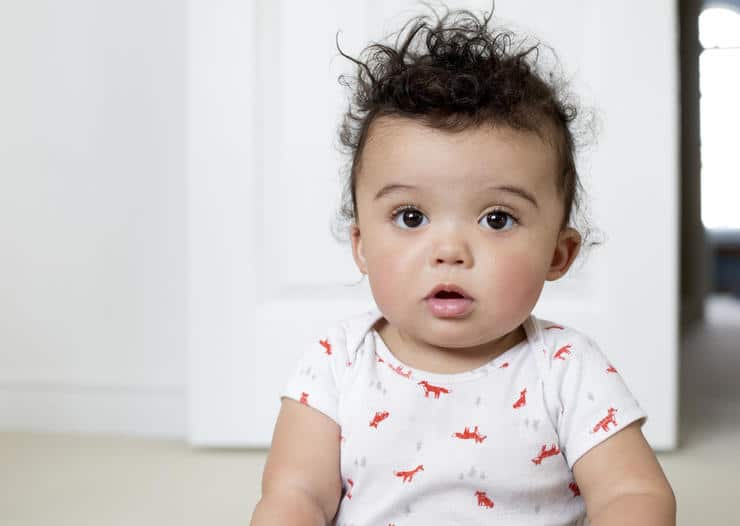
Doyle
Doyle means “descendant of the dark stranger” and pronounced as D-oyL. Doyle was the last name of Sir Arthur Conan Doyle who was the author of the Sherlock Holmes mystery stories.
Driscoll
Driscoll means “descendant of the messenger” and pronounced as DRihZKAHL-.
Drystan
Drystan is a Welsh variation of Tristan which means “noise” or “sorrowful”. Pronounced as DRIHSTahN.
Dubhán
Dubhán means “dark, black” and pronounced as DUWV-aeN.
Dubhghall
Dubhghall is an original Gaelic variation of Dougal which means “dark stranger”. Pronounced as Duw-GL.
Dylan
Dylan means “sea; tide; flow” and pronounced as DUL-an (Celtic) or DIL-ahn (English). Dylan, in Welsh mythology, is a god or hero associated with the sea.
Eachann
Eachann means “brown horse; horse lord” and pronounced as IY-KahN.
Eadbhárd
Eadbhárd is an Irish variation of Edward which means “guardian of riches”.
Éamon
Éamon is a spelling variation of Éamonn which means “wealthy guard; protector of wealth”. Pronounced as EY-MaeN or EY-MowN.
Eamon
Eamon is a spelling variation of Éamon which means “wealthy guard; protector of wealth”.
Éamonn
Éamonn means “wealthy guard; protector of wealth” and pronounced as AY-mon.
Ean
Ean is a Manx variation of John which means “Yahweh is gracious”. Pronounced as IY-N.
Éanna
Éanna is a spelling variation of Énna which means “bird-like”.
Edan
Edan is a variation of Aidan which means “fire; brightness; splendor”. Pronounced as IY-DaeN.
Éibhear
Éibhear means “granite” and pronounced approximately as eh-vihr. Éibhear, in Irish legend, is the name of the two sons of Míl, Éibhear Dunn and Éibhear Finn.
Éibhir
Éibhir is a variation of Éibhear which means “granite”.
Eifion
There is no specific meaning for Eifion. Pronounced as AYV-yon or IEV-yon.
Éimhín
Éimhín means “swift, prompt” and pronounced approximately as –AYMHHIHN.
Einion
Einion means “anvil” and pronounced as ahN-IY-aaN. Einion was the name of a 5th-century Welsh king who is considered a saint in some Christian traditions.
Einrí
Einrí is an Irish variation of Henry which means “lord of the manor”. Pronounced approximately as en-REE.
Elouan
Elouan means “good light” and pronounced as EH-Luw-aeN. Elouan was the name of an obscure 6th-century saint who is now venerated mainly in Brittany and Cornwall.
Emrys
Emrys is a Welsh variation of Ambrose which means “immortal”. Pronounced as EHMRihS-. Emrys was the name of a Romano-British military leader who fought against the invading Anglo-Saxons in the 5th century.
Emyr
Emyr means “king” and pronounced as EHMihr or EHMMehR.
Enda
Enda is an anglicized variation of Énna which means “bird-like”. Pronounced as EHNDaa.
Énna
Énna means “bird-like” and pronounced as AY-na. Énna was the name of several Irish kings and heroes.
Eoghan
Eoghan means “born from the yew tree” and pronounced as O-in or YO-in. Eoghan was the name of several legendary or semi-legendary Irish figures, including a son of Niall of the Nine Hostages.
Eoin
Eoin is a diminutive variation of Eoghan which means “born from the yew tree”. Pronounced as o-wen or O-in.
Ercwlff
Ercwlff is a Welsh variation of Hercules which means “glory of Hera”. Pronounced approximately as Ehrr-kwuhf.
Erskine
Erskine means “verdant hill” or “projecting height” and pronounced as UR-skien.
Erwan
Erwan means “yew” and pronounced as -RWae-N.
Erwann
Erwann is a spelling variation of Erwan which means “yew”.
Eurig
Eurig means “gold” or “war-like” and pronounced as EY-R-ihG.
Evan
Evan means “born of the yew” or “Yahweh is gracious”.
Fachtna
Fachtna means “angry; hostile” and pronounced as FAKHT-na. Fachtna, in Irish legend, is the husband of Neasa and in some versions of the legends also have him as the father of Conchobhar.
Faolán
Faolán means “little wolf” and pronounced as FWAY-lahn. Faolán was the name of an Irish saint who did missionary work in Scotland.
Farquhar
Farquhar is an anglicized variation Fearchar which means “beloved man”. Pronounced as FAARKWaoR.
Fearchar
Fearchar means “beloved man” and pronounced as Faa-RKaa-R.
Feardorcha
Feardorcha means “dark man” and pronounced as Faa-RDaoerah-K.
Fearghal
Fearghal means “man of valor” or “brave man” and pronounced as FAARRehL-. Fearghal was the name of an 8th-century king of Ireland.
Fearghas
Fearghas means “man of vigor” and pronounced as F-ERGahS. Fearghas is the name of several characters in Irish legend including the Ulster hero Fearghas mac Róich.
Fechín
Fechín means “little raven” and pronounced as FE-kheen.
Feichín
Feichín is a spelling variation of Fechín which means “little raven”.
Feidhlim
Feidhlim is a diminutive variation of Feidhlimidh which means “beauty” or “ever good”. Pronounced as FE-lim.
Feidhlimidh
Feidhlimidh means “beauty” or “ever good” and pronounced approximately as fehliym.
Felim
Felim is an anglicized variation of Feidhlim which means “beauty” or “ever good”.
Fergal
Fergal is an anglicized variation of Fearghal which means “man of valor” or “brave man”. Pronounced as F-ERGahL.
Fergus
Fergus is an anglicized variation of Fearghas which means “man of vigor”. Pronounced as FUR-gahs or FAHR-GahS. 
Ffransis
Ffransis is a Welsh variation of Francis which means “Frenchman; free one”. Pronounced as FRAENSihS.
Fiachna
Fiachna means “raven” and pronounced approximately as fiyah-nah. Fiachna was the name of a king in Irish legend.
Fiachra
Fiachra is a variation of Fiachna which means “raven”. Pronounced as FEE-akh-ra. Fiachra, in Irish legend, is one of the four children of Lir transformed into swans for a period of 900 years.
Fillin
Fillin is an anglicized variation of Faolán which means “little wolf”. Pronounced as FIH-LihN.
Finbar
Finbar is a diminutive variation of Fionnbharr which means “fair hair”. Pronounced as FIN-bar.
Finbarr
Finbarr is a spelling variation of Finbar which means “fair hair”.
Finlay
Finlay is an anglicized variation of Fionnlagh which means “white warrior”.
Finnagán
Finnagán is a variation of Finn which means “fair” or “white”.
Finnán
Finnán is an older variation of Fionnán which means “fair” or “white”.
Finnbar
Finnbar is a spelling variation of Finbar which means “fair hair”. (Similar to Finbarr.)
Finnbarr
Finnbarr is an Old Irish variation of Fionnbharr which means “fair hair”.
Finnegan
Finnegan means “descendant of Fionnagán” and pronounced as FIN-ah-gahn.
Finnén
Finnén is an older variation of Finnian which means “white”. Pronounced as Fih-nein.
Finnian
Finnian means “white” and pronounced as FIHN-iy-ahN. Finnian was the name of several Irish saints.
Fintan
Fintan means “white fire” or “white bull” and pronounced as FIN-tan. According to legend this was the name of the only Irish person to survive the great flood.
Fion
Fion is a spelling variation of Fionn which means “fair” or “white”.
Fionn
Fionn is a modern variation of Finn which means “fair” or “white”. Fionn mac Cumhail was a legendary Irish hero who became all-wise by eating an enchanted salmon.
Fionnán
Fionnán is a variation of Fionn which means “fair” or “white”. Pronounced as FYI-nan.
Fionnbarra
Fionnbarra is a variation of Fionnbharr which means “fair hair”. Pronounced approximately as FiyaaNNBAER-AH.
Fionnbharr
Fionnbharr means “fair hair” and pronounced as FiyaaNNBHHAAR-.
Fionnlagh
Fionnlagh means “white warrior” and pronounced approximately as FiyaaNNLAHG-.
Fionntan
Fionntan is a modern variation of Fintan which means “white fire” or “white bull”.
Flaithrí
Flaithrí means “king of princes”.
Florry
Florry is an anglicized variation of Flaithrí which means “king of princes”.
Flurry
Flurry is a variation of Florry which means “king of princes”.
Folant
Folant is a Welsh variation of Valentine which means “strong, vigorous, healthy”. Pronounced approximately as FOWLaeN.
Frañsez
Frañsez is a Breton variation of Francis which means “Frenchman; free man”.
Gaël
Gaël means “Irishman” and pronounced as GAA-ehL.
Gallagher
Gallagher means “foreigner’s friend” or “descendant of Gallchobhar” and pronounced as GAHL-aa-JH-er.
Gallchobhar
Gallchobhar means “stranger; foreigner; help” and pronounced approximately as GAOL-CH-AWBHHAAR.
Garbhán
Garbhán means “little rough one” and pronounced as GAHR-vawn. Garbhán was the name of a famous 7th-century Irish saint.
Gareth
Gareth means “gentle”. Gareth first appears in Thomas Malory’s 15th-century compilation of Arthurian legends ‘Le Morte d’Arthur’, in which Gareth was a Knight of the Round Table, the brother of Sir Gawain.
Garvan
Garvan is an anglicized variation Garbhán which means “little rough one”.
Gavin
Gavin means “white hawk” and pronounced as GAEV-ihN.
Gawain
Gawain means “may hawk” or “white hawk” and pronounced as gah-WAYN or GAH-win. Gawain is the name of a nephew of King Arthur and one of the Knights of the Round Table in Arthurian legend.
Gearalt
Gearalt is an Irish variation of Gerald which means “rule of the spear” or “brave with the spear”. Pronounced approximately as GIHEHRAOLT.
Gearóid
Gearóid means “rule of the spear” and pronounced approximately as GIHAAR-AYD.
Geraint
Geraint means “gentle” and pronounced as GEHR-ient (Celtic) or jair-RYNT (English). (Similar to Gareth.) Geraint is a name connected to the Arthurian Legend, he is one of the Knights of the Round Table and the husband of Enid.
Gerallt
Gerallt is a Welsh variation of Gerald which means “rule of the spear” or “brave with the spear”.
Gethin
Gethin means “dark-skinned; swarthy; dusky” and pronounced as GEH-TH-ahN.
Gilroy
Gilroy means “son of the red-haired servant” or “son of the king’s servant”. Pronounced as GIHLR-oy.
Glendower
Glendower is an anglicized variation Glyndwr which means “valley water”. Pronounced as GLEHND-AW-er.
Glyn
Glyn means “valley” and pronounced as GLihN.
Glyndwr
Glyndwr means “water valley” and pronounced as glin-door. Glyndwr is a name often given in honor of Owain Glyndwr, a 14th-century Welsh patriot who led a revolt against England.
Glynn
Glynn is a spelling variation of Glyn which means “valley”.
Gobán
Gobán means “little smith” and pronounced as GowBAHN.
Gofraidh
Gofraidh is an Irish variation of Godfrey which means “God’s peace”. Pronounced as GOWFREY-D-.
Goronwy
There is no specific meaning for Goronwy. Goronwy, in Welsh myth, was the lover of Blodeuwedd. He attempted to murder her husband Lleu Llaw Gyffes but was himself killed.
Grady
Grady means “descendant of Grádaigh” and pronounced as GRAY-dee.
Gréagóir
Gréagóir is an Irish variation of Gregory which means “watchful, alert”. Pronounced as GRAY-gor.
Griffith
Griffith is an anglicized variation of Gruffudd which means “lord; prince”. Pronounced as GRIF-ith.
Grigor
Grigor is a Welsh variation of Gregory which means “watchful, alert”. Pronounced as GRIHG-aoR.
Gronw
Gronw is a diminutive variation of Goronwy which is a name with no specific meaning.
Gruffud
Gruffud is a spelling variation of Gruffudd which means “lord; prince”.
Gruffudd
Gruffudd means “lord; prince” and pronounced as GRIF-idh. Gruffudd was a common name among medieval Welsh royalty.
Gruffydd
Gruffydd is a variation of Gruffudd which means “lord; prince”. Pronounced as GRI-fidh or GRAHF-ih-TH.
Grwn
Grwn means “ridge” and pronounced as Groon.
Guto
Guto is a diminutive variation of Gruffudd which means “lord; prince”. Pronounced as GI-taw.
Gwallter
Gwallter is a Welsh variation of Walter which means “ruler of the army”. Pronounced approximately as GWAOL-T-er.
Gwenaël
Gwenaël means “blessed and generous” and pronounced as GWE-NA-EL. Gwenaël was the name of a famous 6th-century abbot of Brittany.
Gwenneg
Gwenneg means “white; fair; blessed” and pronounced as GWEH-neg.
Gwil
Gwil is a diminutive variation of Gwilym which means “will; desire; helmet”.
Gwilherm
Gwilherm is a Breton variation of William which means “will; desire; helmet; protection”. Pronounced as GWIHLHHehM.
Gwilim
Gwilim is a spelling variation of Gwilym which means “will; desire; helmet”.
Gwillym
Gwillym is a spelling variation of Gwilym which means “will; desire; helmet”. (Similar to Gwilim.)
Gwilym
Gwilym means “will; desire; helmet” and pronounced as GWIHL-ihM.
Gwynfor
Gwynfor means “fair, blessed; holy; large” and pronounced as GWIHNV-er.
Gwythyr
Gwythyr is a Welsh variation of Victor which means “victor, conqueror”. Pronounced approximately as GWIH-THiyR.
Haco
Haco means “flame, fire”. Haco was a mythical Cornish leader who lost his beautiful princess bride by unwittingly promising her to a musician whose songs he admired.
Harri
Harri is a Welsh variation of Harry which means “house owner; lord of the manor”. Pronounced as HAHR-ree.
Haul
Haul means “sun”.
Heber
Heber is an anglicized variation of Éibhear which means “granite”.
Heddwyn
Heddwyn means “peaceful” and pronounced as HHEH-THWihN.
Hefin
Hefin means “summer” and pronounced as HHEHV-ahN.
Heilyn
Heilyn means “wine bearer” and pronounced as HHUW-LihN.
Hopcyn
Hopcyn means “son of Hob” and pronounced approximately as HHAAPSihN.
Howell
Howell is an anglicized variation of Hywel which means “eminent”. Pronounced as HH-AWehL.
Huw
Huw means “heart; mind; spirit” and pronounced as HYOO.
Hywel
Hywel means “eminent” and pronounced as HHAW-ahL or HHUW-WahL. Hywel was the name of a 10th-century king of Wales.
Iago
Iago means “holder of heel; sup-planter” and pronounced as iy-AE-Gao. Iago was the name of two early Welsh kings of Gwynedd.
Ianto
Ianto is a diminutive variation of Ifan which means “Yahweh is gracious”.
Iarfhlaith
There is no specific meaning for Iarfhlaith. Pronounced as EER-lah. Iarfhlaith was the name of a 6th-century bishop from Galway, Ireland.
Iarlaith
Iarlaith is a variation of Iarfhlaith which is a name with no specific meaning. Pronounced as EER-lah.
Idris
Idris means “ardent lord” or “fiery leader” and pronounced as IHDRihS-.
Idwal
Idwal means “lord of the wall” or “leader’s protection” and pronounced as IHDWaoL.
Iefan
Iefan means “born of the yew” and pronounced as AYVae-N.
Iestyn
Iestyn is a Welsh variation of Justin which means “just; righteous; fair”. Pronounced as YEHSTihN.
Ieuan
Ieuan is an Old Welsh variation of John which means “god is gracious”. Pronounced as YAY-YaeN.
Ifan
Ifan is a Welsh variation of John which means “god is gracious”. Pronounced as IY-F-aeN.
Ilar
Ilar means “cheerful” and pronounced as IY-LaaR.
Illiam
Illiam is a Manx variation of William which means “will; desire; helmet; protection”. Pronounced as il-yahm.
Illtyd
Illtyd means “multitude of land” or “many people” and pronounced approximately as ayL-TAYD. Illtyd was the name of a 6th-century Welsh saint who founded the abbey of Llanilltud in Glamorgan.
Ioan
Ioan is a Welsh variation of John which means “Yahweh is gracious”. (Similar to Ifan.) Pronounced as YOWaeN.
Iolo
Iolo is a diminutive variation of Iorwerth which means “handsome lord” or “worthy leader”. Pronounced as YAAL-ow-.
Iolyn
Iolyn is a diminutive variation of Iorwerth which means “handsome lord” or “worthy leader”. (Similar to Iolo.) Pronounced approximately as Ayowh-lin.
Íomhar
Íomhar is a variation of Ivor which means “yee; bow; warrior”. Pronounced approximately as AY-woHR or AYowMHHAAR.
Ionatán
Ionatán is an Irish variation of Jonathan which means “Yahweh has given”.
Iorwerth
Iorwerth means “handsome lord” or “worthy leader” and pronounced as YAORWeh-R-TH. Iorwerth, in Welsh myth, is the name of a son of Maredudd.
Islwyn
Islwyn means “below the grove” and pronounced as IHS-Luw-WihN.
Ithel
Ithel means “generous lord” and pronounced as IH-TH-ehL.
Ivor
Ivor means “yew; bow; warrior” and pronounced as AY-VaoR or IY-VaoR.
Iwan
Iwan is a variation of Ioan which means “Yahweh is gracious”. Pronounced as IW-an.
Jarlath
Jarlath means “in control” and pronounced as JAHR-lath.
Jodoc
Jodoc is a spelling variation of Judoc which means “lord”.
Juan
Juan is a Manx and Spanish variation of John which means “Yahweh is gracious”. Pronounced as HHWAAN.
Judicaël
Judicaël means “generous prince” and pronounced as ZHUY-DEE-KA-EL. Judicaël was the name of a 7th-century Breton king, also regarded as a saint.
Judikael
Judikael is a spelling variation of Judicaël which means “generous prince”.
Judoc
Judoc means “lord” and pronounced as JHuwDAAK.
Kane
Kane means “warrior” or “little battle” and pronounced as KAA-Neh- or Key-N.
Kean
Kean is an anglicized variation of Cian which means “ancient”. Pronounced as KIY-N.
Keane
Keane is a spelling variation of Kean which means “ancient”. Pronounced as KIY-N.
Keefe
Keefe means “descendant of the handsome one” and pronounced as KEEF.
Keegan
Keegan means “son of Egan” and pronounced as KEE-gahn.
Kelan
Kelan is an anglicized variation of Caolán which means “slender”.
Kevan
Kevan is a variation of Kevin which means “kind, gentle, handsome”. Pronounced as KEHV-aeN.
Kevin
Kevin means “kind, gentle, handsome” and pronounced as KEHV-in. Kevin is the name of the patron saint of Dublin.
Kilian
Kilian is a spelling variation of Killian which means “church” or “war; strife”. Pronounced as KEE-lyan.
Killian
Killian is an anglicized variation of Cillian which means “church” or “war; strife”.
Kyran
Kyran is a variation of Kieran which means “little dark one; little dark-haired one”. Pronounced as KIH-R-aeN.
Labhrás
Labhrás means “laurel; bay” and pronounced as LOW-raws or LAV-raws.
Lachtna
Lachtna means “milk-colored” and pronounced as LAEK-TNAH. Lachtna was the name of an ancestor of the Irish king Brian Boru.
Laoghaire
Laoghaire means “calf herder” and pronounced as LEE-ah-ryah or Leh-Riy-.
Leachlainn
Leachlainn possibly means “second” or “disciple of Saint Seachnall”.
Leary
Leary is an anglicized variation of Laoghaire which means “calf herder”. Pronounced as LEER-ee.
Leolin
Leolin is a diminutive variation of Llywelyn which means “bright; brilliant; light”. Pronounced as Le-oh-lin.
Liam
Liam is an Irish variation of William which means “will; desire; helmet; protection”. Pronounced as LIY-ahM.
Llew
Llew is a diminutive variation of Llywelyn which means “bright; brilliant; light”. (Similar to Leolin.) Pronounced as SHEW or HHL-uw.
Llewellyn
Llewellyn is a spelling variation of Llewelyn which means “bright; brilliant; light”.
Llewelyn
Llewelyn is a variation of Llywelyn which means “bright; brilliant; light”. Pronounced as loo-EHL-in.
Llywellyn
Llywellyn is a spelling variation of Llywelyn which means “bright; brilliant; light”.
Llywelyn
Llywelyn means “bright; brilliant; light” and pronounced as sah-WE-lin or li-WEL-in. Llywelyn was the name of several Welsh rulers, notably the 13th-century Llywelyn the Great who fought against England.
Lochlainn
Lochlainn means “from Norway” or “laurel; bay” and pronounced approximately as LAAK-LEYHHN-.
Lochlann
Lochlann is a spelling variation of Lochlainn which means “from Norway” or “laurel; bay”. Pronounced approximately as LAAK-LAEN-.
Loïc
Loïc is a Breton variation of Louis which means “fame; loud; fighter; warrior”. Pronounced as LAW-EEK or LAH-K.
Lomán
Lomán is a spelling variation of Lommán which means “little bare one” or “sensitive”.
Lommán
Lommán means “little bare one” or “sensitive”. Lommán was the name of a 5th-century saint, a nephew of Saint Patrick.
Lonán
Lonán means “little blackbird” and pronounced as LUW-nan.
Lorcán
Lorcán means “little fierce one” and pronounced as LOR-kan.
Lorccán
Lorccán is a spelling variation of Lorcán which means “little fierce one”.
Lúcás
Lúcás is an Irish variation of Lucas which means “from Lucania”. Pronounced as loo-kahs.
Lughaidh
Lughaidh means “shining one” and pronounced as LOO-ee or LAHG-EY-D-. Lughaidh is the name of several characters in Irish legend, including the king Lughaidh mac Con.
Mabon
Mabon means “youth” or “great son”. Mabon is a name of an old Celtic god who represents light.
Macsen
Macsen means “greatest” and pronounced as MAK-sehn.
Madoc
Madoc means “fortunate; good” or “fire” and pronounced as MAA-Daa-K.
Madog
Madog means “fortunate; good” or “son of Madoc” and pronounced as MAA-DaoG.
Maël
Maël means “disciple; prince; chief” and pronounced as MA-EL or MAH-L.
Mael
Mael is a Breton variation of Maël which means “disciple; prince; chief”. Pronounced as MAA-ehL or MIHL-.
Mághnus
Mághnus means “greatest” and pronounced approximately as MAH-KNahS. (Similar to Macsen.)
Mahon
Mahon means “bear” and pronounced as mah-hon or MEYAHN.
Mainchín
Mainchín means “little monk” and pronounced as MEY-NCH-ihN.
Máirtín
Máirtín is an Irish variation of Martin which means “war-like” or “dedicated to Mars”.
Maitiú
Maitiú is an Irish variation of Matthew which means “gift of Yahweh”. Pronounced as MAT-yoo.
Malachy
Malachy means “my messenger” and pronounced as MAA-Laa-KIY– or MAA-Laa-KAI.
Maldwyn
Maldwyn means “bold friend; brave friend” and pronounced as MAOLDWihN.
Mannix
Mannix is an anglicized variation of Mainchín means “little monk”. Pronounced as MAENNihS or mAEn-ihks.
Manus
Manus is a variation of Mághnus which means “greatest”.
Maolsheachlann
Maolsheachlann means “disciple of Saint Seachnall” and pronounced as meel-HAKH-lahn.
Marc
Marc is a Welsh variation of Mark which means “war-like” or “dedicated to Mars”. Pronounced as MARK.
Marcas
Marcas is an Irish and Scottish variation of Mark which means “war-like” or “dedicated to Mars”.
Maredudd
Maredudd is a variation of Meredith which means “great chief” or “sea lord”. Pronounced as mah-RE-deeth.
Martyn
Martyn is a Welsh variation of Martin which means “war-like” or “dedicated to Mars”.
Mathúin
Mathúin is a variation of Mahon which means “bear”. Pronounced as MA-hoon.
Maxen
Maxen is an anglicized variation of Macsen which means “greatest”. Pronounced as MAK-sahn.
Meallán
Meallán means “pleasant” or “lightning” and pronounced as MEL-awn.
Meical
Meical is a Welsh variation of Michael which means “who is like God?”. Pronounced as MAYKaeL.
Meirion
Meirion means “gleaming” or “war-like” and pronounced as MAY-Riy-ahN.
Mellan
Mellan is an anglicized variation of Meallán which means “pleasant” or “lightning”. Pronounced as MEHL-an.
Melor
Melor means “iron man”. Melor is the name of a Breton saint who in legend was also a prince, suggesting he was the son of a Cornish king. Melor was said to have a foot and hand made of silver.
Meredydd
Meredydd is a Welsh variation of Meredith which means “great chief” or “sea lord”.
Merfyn
Merfyn is an Old Welsh variation of Mervyn which means “marrow famous”. Pronounced as mer-fihn or mer-vihn. Merfyn was the name of a 9th-century Welsh king, Merfyn Frych.
Merrion
Merrion is a spelling variation of Meirion which means “gleaming” or “war-like”. Pronounced as Mer-ee-on or Meh-RIY-aaN.
Mervin
Mervin means “marrow famous” and pronounced as MUR-vin.
Mervyn
Mervyn is a spelling variation of Mervin which means “marrow famous”.
Meuric
Meuric is a variation of Meurig which means “swarthy; dark skinned; moor”.
Meurig
Meurig means “swarthy; dark skinned; moor” and pronounced as MAY-rig or MAYUHERihG.
Mícheál
Mícheál is an Irish variation of Michael which means “who is like God?”. Pronounced as Miy-HHAHL-.
Mihangel
Mihangel means “angel” or “who is like God?” and pronounced as Mih-HHAANJHehL.
Mostyn
Mostyn means “moss town” and is a Welsh place-name. Pronounced as MAHSTihN.
Muirchertach
Muirchertach means “mariner” and pronounced as mur-cher-tach. Muirchertach was the name of a 6th-century Irish high king.
Muireadhach
Muireadhach is a modern variation of Muiredach which means “lord” or “seaman; mariner”. Pronounced as MAYUH-RDah-K.
Muiredach
Muiredach means “lord” or “seaman; mariner” and pronounced approximately as myu-ree-dak. Muiredach was the name of several legendary and historical kings of Ireland.
Muiris
Muiris is a variation of Meurig which means “swarthy; dark skinned; moor”. (Similar to Meuric.)
Murchadh
Murchadh means “seaman; mariner” and pronounced as M-ERah-K.
Murdoch
Murdoch is an anglicized variation of Muiredach which means “lord” or “seaman; mariner”. Pronounced as M-ERDahK.
Murrough
Murrough is an anglicized variation of Murchadh which means “seaman; mariner”. Pronounced approximately as murrow.
Murtagh
Murtagh is an anglicized variation of Muiredach which means “lord” or “seaman; mariner”. (Similar to Murdoch.) Pronounced as MERTAHG.
Naoise
Naoise is a Celtic mythological name that is pronounced as NEE-sha. The legend says that Naoise ran off with Dierdre, the betrothed of the King of Ulster who subsequently killed him. Dierdre then died of a broken heart.
Naomhán
Naomhán means “little saint; little holy one” and pronounced approximately as NaaOWMHH-N.
Neifion
Neifion is a Welsh variation of Neptune which means “wet; damp; clouds”. Pronounced approximately as N-IHFiyAHN.
Neil
Neil means “champion; cloud; passionate” and pronounced as NEEL.
Neirin
Neirin is an older variation of Aneirin which means “high-minded” or “noble”. Pronounced as N-EYRihN.
Nevan
Nevan is an anglicized variation of Naomhán which means “little saint; little holy one”. Pronounced as NEH-VaeN or neh-Van.
Niall
Niall is the original Gaelic variation of Neil which means “champion; cloud; passionate”. Niall was the name of a semi-legendary 4th-century Irish king, Niall of the Nine Hostages.
Ninian
There is no specific meaning for Ninian. Ninian was the name of a 5th-century British saint who was apparently responsible for many miracles and cures.
Nioclás
Nioclás is an Irish variation of Nicholas which means “victory of the people”. Pronounced as NIK-lahs.
Nolan
Nolan means “descendant of Nualláin” or “champion” and pronounced as NO-lahn.
Nye
Nye is a diminutive variation of Aneirin which means “high-minded” or “noble”. Pronounced as Niy or nAY.
Odhrán
Odhrán means “little pale green one” and pronounced as O-rawn. Odhrán was the name of a saint who traveled with Saint Columba through Scotland.
Odran
Odran is an anglicized variation of Odhrán which means “little pale green one”. Pronounced as O-rawn.
Ofydd
Ofydd means “sheep”.
Oisín
Oisín means “little deer” and pronounced as aw-SHEEN (Celtic) or o-SHEEN (English). Oisín, in Irish myth, is the son of Fionn mac Cumhail who is a warrior hero and a poet.
Oran
Oran is an anglicized variation of Odhrán which means “little pale green one”. Pronounced as O-ran.
Orrin
Orrin is an anglicized variation of Odhrán which means “little pale green one”. (Similar to Oran.) Pronounced as O-rrihN.
Oscar
Oscar means “deer lover; gentle friend; God spear” and pronounced as AhS-KahR or AWS-kar. Oscar, in Irish legend, is the son of Ossian and the grandson of Finn Mac Cumhaill (MacCool).
Osheen
Osheen is an anglicized variation of Oisín which means “little deer”. Pronounced as OH-sheen.
Owain
Owain means “lamb; youth” and pronounced as O-wien or OWWehN. Owain was the name of several figures from Welsh history and mythology.
Owen
Owen means “lamb; youth” or “born of the yew” and pronounced as O-in.
Paddy
Paddy is a diminutive variation of Patrick which means “nobleman”. Pronounced as PAED-iy-.
Pádraic
Pádraic is an Irish variation of Patrick which means “nobleman”. Pronounced as PAW-drik.
Pádraig
Pádraig is a variation of Pádraic which means “nobleman”. Pronounced as Pao-DRihG or PA-drəg.
Padrig
Padrig is a Welsh variation of Patrick which means “nobleman”. Pronounced as PAEDDRihG.
Paol
Paol is a Breton variation of Paul which means “little; humble”.
Parry
Parry means “son of Harry” and pronounced as PAE-Riy-.
Patrick
Patrick means “nobleman” and pronounced as PA-trik. Patrick is the name of the patron saint of Ireland, credited with converting his people to Christianity in the fifth century.
Peadar
Peadar is an Irish and Scottish variation of Peter which means “rock”. Pronounced as PAD-ar.
Pedr
Pedr is a Welsh variation of Peter which means “rock”. Pronounced as PIY-Der.
Penn
Penn means “enclosure” and pronounced as PEHN.
Per
Per is a Breton variation of Peter which means “rock”.
Perig
Perig is a variation of Per which means “rock”.
Phelan
Phelan is an anglicized variation of Faolán which means “little wolf”. (Similar to Fillin.) Pronounced as fay-lahn or FEY-LihN.
Phelim
Phelim is an anglicized variation of Feidhlim which means “beauty” or “ever good”. (Similar to Felim.) Pronounced as F-EHLIYM.
Pherick
Pherick is a Manx variation of Patrick which means “nobleman”.
Piaras
Piaras is an Irish variation of Peter which means “rock”. Pronounced as PEE-a-rus.
Pierrick
Pierrick is a Breton variation of Peter which means “rock”. (Similar to Per.) Pronounced as Pyeh-RIKk.
Pilib
Pilib is an Irish variation of Philip which means “friend of horses”.
Pól
Pól means “crown” or “humble” and pronounced as POL.
Price
Price means “son of the ardent one” and pronounced as PRIES. 
Proinsias
Proinsias is an Irish variation of Francis which means “Frenchman; free one”. Pronounced approximately as PROY-NSiyAHZ.
Pryce
Pryce is a spelling variation of Price which means “son of the ardent one”.
Pryderi
Pryderi means “caretaker” and pronounced as PRahD-ERiy-. Pryderi, in Welsh myth, succeeded his father as king of Dyfed, but is ultimately killed in single combat with Gwydion.
Raghnall
Raghnall means “well-advised ruler” and pronounced as RAY-nahl.
Réamann
Réamann means “well-advised protector” and pronounced as RE-mahn.
Rearden
Rearden is an anglicized variation of Rórdán which means “little poet king”. Pronounced as ROR-dan or RIHRDAHN.
Redmond
Redmond is an anglicized variation of Réamann which means “well-advised protector”. Pronounced as REHDMahND.
Redmund
Redmund is a spelling variation of Redmond which means “well-advised protector”.
Rheinallt
Rheinallt means “well-advised ruler” and pronounced as REHN-aa-L-. (Similar to Raghnall.)
Rhisiart
Rhisiart is a Welsh variation of Richard which means “dominant ruler”. Pronounced approximately as RIH-SH-erD.
Rhodri
Rhodri means “famously powerful” or “wheel, circle” and pronounced as RHOD-ree. Rhodri was the name of a 9th-century Welsh king.
Rhydderch
Rhydderch means “famous ruler” or “reddish brown” and pronounced as HRUDH-erkh.
Riagán
Riagán means “impulsive” and pronounced as REE-ah-gan or RIY-GaeN.
Ríoghnán
Ríoghnán means “king”. (Similar to Emyr.)
Riordan
Riordan is an anglicized variation of Rórdán which means “little poet king”. (Similar to Rearden.) Pronounced as REAR-den.
Risteárd
Risteárd is an Irish variation of Richard which means “dominant ruler”. Pronounced as RIY-SHTiy-erD.
Roderick
Roderick means “famous ruler” and pronounced as RAHD-ah-rik or RAHD-rik. The name Roderick was in use among the Visigoths; it was borne by their last king (also known as Rodrigo).
Roibeárd
Roibeárd is an Irish variation of Robert which means “bright fame”. Pronounced approximately as ROY-B-RD.
Rónán
Rónán means “little seal” and pronounced as RO-nahn.
Roparzh
Roparzh is a Breton variation of Robert which means “bright fame”. Pronounced as ROWPaaRZ.
Rórdán
Rórdán means “little poet king” and pronounced as RAO-RDahN.
Ruadh
Ruadh means “red-haired; king; ruddy” and pronounced approximately as RAHAAD- or ROO-aHD.
Ruadhán
Ruadhán means “little red-haired; little ruddy one” and pronounced as ROO-awn.
Ruaidhrí
Ruaidhrí means “red king” and pronounced as ROR-ee. Ruaidhri was the name of the last high king of Ireland.
Ruaidrí
Ruaidrí is a variation of Ruaidhri which means “red king”.
Ruairí
Ruairí is a diminutive variation of Ruaidhri which means “red king”. Pronounced approximately as ROH-ree.
Ruarc
Ruarc means “squall, rainstorm” or “famous ruler”.
Sawyl
Sawyl means “God has heard; asked of God” and pronounced approximately as SAO-ehL.
Sé
Sé is a diminutive variation of Séaghdha which means “hawk-like; fine”. Pronounced as SHEH.
Seachlann
Seachlann is a variation of Seachnall which means “seconds”. Pronounced as SHAKH-lahn.
Seachnall
Seachnall means “seconds” and pronounced as SHAKH-nahl.
Séafra
Séafra is an Irish variation of Geoffrey which means “peaceful ruler”. Pronounced as -SHEY-FRah.
Séaghdha
Séaghdha means “hawk-like; fine” and pronounced as SHAY.
Séamas
Séamas is an Irish variation of James which means “holder of the heel; supplanter”. Pronounced as SHEH-mahs.
Séamus
Séamus is a spelling variation of Séamas which means “holder of the heel; supplanter”. Pronounced as SHEH-mahs.
Seán
Seán is an Irish variation of John which means “Yahweh is gracious”. Pronounced as -SHao-N.
Sean
Sean is an anglicized variation of Seán which means “Yahweh is gracious”. Pronounced as SHAWN.
Seanán
Seanán is a variation of Senán which means “little old person” or “little wise one”. Pronounced as -SHEY-Nae-N.
Séarlas
Séarlas is an Irish variation of Charles which means “man; free man”. Pronounced as SHAHR-las.
Sechnall
Sechnall is a spelling variation of Seachnall which means “seconds”.
Senán
Senán means “little old person” or “little wise one” and pronounced approximately as SAHN-N or sheh-nahn.
Senan
Senan is an anglicized variation of Senán which means “little old person” or “little wise one”.
Seoirse
Seoirse is an Irish variation of George which means “farmer, earth worker”. Pronounced as SHOR-shah.
Seosamh
Seosamh is an Irish variation of Joseph which means “Yahweh will add (another son)”. Pronounced as SHO-sav.
Shamus
Shamus is an anglicized variation of Séamus which means “holder of the heel; supplanter”. Pronounced as SHAY-mahs.
Sheamus
Sheamus is a variation of Shamus which means “holder of the heel; supplanter”. Pronounced as SHAY-mus.
Siarl
Siarl is a Welsh variation of Charles which means “man; free man”. Pronounced as SHARL.
Sieffre
Sieffre is a Welsh variation of Geoffrey which means “peaceful ruler”. Pronounced approximately as -SHEHFRiy-.
Siôr
Siôr is a Welsh variation of George which means “farmer, earth worker”. Pronounced as SHOR.
Siors
Siors is a variation of Siôr which means “farmer, earth worker”.
Siorus
Siorus is a variation of Siors which means “farmer, earth worker”.
Siothrún
Siothrún is an Irish variation of Geoffrey which means “peaceful ruler”. (Similar to Séafra.) Pronounced as sheh-roon.
Sítheach
Sítheach means “peaceful; fairy-like; mysterious”.
Somhairle
Somhairle means “a summer sailor” and pronounced approximately as SAAMHHEH-RAH-.
Sorley
Sorley is an anglicized variation of Somhairle which means “a summer sailor”. Pronounced as SAWR-lee.
Steffan
Steffan means “crown” and pronounced as STEHF-aeN or STIYVVae-N.
Stiofán
Stiofán is an Irish variation of Steffan which means “crown”. Pronounced as shtee-FAWN or SHTTUW-fahn.
Suibhne
Suibhne means “well-going” and pronounced as SIV-na. Suibhne was the name of a 7th-century high king of Ireland.
Suibne
Suibne is a spelling variation of Suibhne which means “well-going”.
Sweeney
Sweeney means “the little hero” and pronounced as SWIYNiy.
Tadg
Tadg is an Old Irish variation of Tadhg which means “poet; philosopher”.
Tadhg
Tadhg means “poet; philosopher” and pronounced as TAYG. Tadhg was the name of an 11th-century king of Connacht.
Tadhgán
Tadhgán is a variation of Tadhg which means “poet; philosopher”.
Taffy
Taffy means “beloved; favorite; darling” and pronounced as TAEF-iy-. 
Talfryn
Talfryn means “high hill” and pronounced approximately as tahl-frinn.
Taliesin
Taliesin means “shining brow” and pronounced as tal-YEH-sin. Taliesin was the name of a 6th-century Welsh poet and bard. In later Welsh legends he is portrayed as a wizard and prophet, or as a companion of King Arthur.
Teague
Teague is an anglicized variation of Tadhg which means “poet; philosopher”. Pronounced as TAYG or TEEG.
Tegid
Tegid means “fair” or “quiet” and pronounced as teh-gihd. Tegid, in medieval Welsh legend, is the name of the husband of Ceridwen.
Teige
Teige is an anglicized variation of Tadhg which means “poet; philosopher”. (Similar to Teague.) Pronounced as TAYG.
Teigue
Teigue is a spelling variation of Teige which means “poet; philosopher”.
Tew
Tew means “warrior god” and pronounced approximately as tyuu.
Tiarnach
Tiarnach is a modern Irish variation of Tighearnach which means “lord”. Pronounced approximately as TiyAARNAHK-.
Tiarnán
Tiarnán is a modern Irish variation of Tighearnán which means “little lord”.
Tiernan
Tiernan is an anglicized variation Tighearnán which means “little lord”. Pronounced as TYEHR-NAHN.
Tigernach
Tigernach is a variation of Tighearnach which means “lord”. Pronounced approximately as TAYG-erNAHK-.
Tigernán
Tigernán is a variation of Tighearnán which means “little lord”.
Tighe
Tighe is an anglicized variation of Tadhg which means “poet; philosopher”. (Similar to Teague and Teige.) Pronounced as TAYG.
Toal
Toal is an anglicized variation of Tuathal which means “ruler of the people”. Pronounced as TOWL.
Toirdhealbhach
Toirdhealbhach means “instigator” and pronounced as T-ERiy-aa-LVaa- or TE-ryah-lah-wahkh. Toirdhealbhach is associated with folk etymology with Porr, the name of the god of thunder in Norse mythology.
Tomás
Tomás means “twin” and pronounced as to-MAS.
Tomi
Tomi is a diminutive variation of Tomás which means “twin”. Pronounced as TO-mee.
Tomos
Tomos is a Welsh variation of Tomás which means “twin”. Pronounced as TAW-maws.
Torin
Torin means “chief”.
Trahaearn
Trahaearn means “very much like iron” and pronounced as TRahHH-ERN.
Traherne
Traherne is an anglicized variation of Trahaearn which means “very much like iron”. Pronounced as TRah-HH-ERN.
Treasach
Treasach means “war-like” or “fighter” and pronounced approximately as treh-sahk or TREH-ZAEK-.
Trefor
Trefor is a variation of Trevor which means “big village”. Pronounced as TREH-V-or.
Trev
Trev is a diminutive variation of Trevor which means “big village”. Pronounced as TREHV.
Trevor
Trevor means “big village” and pronounced as TREHV-ahr.
Tristan
Tristan means “noise” or “sorrowful” and pronounced as TRIS-tahn. Tristan is a character in medieval French tales, probably inspired by older Celtic legends, and ultimately merged into Arthurian legend.
Triston
Triston is a variation of Tristan which means “noise” or “sorrowful”. Pronounced as TRIS-tahn.
Trystan
Trystan is a spelling variation of Tristan which means “noise” or “sorrowful”.
Tuathal
Tuathal means “ruler of the people” and pronounced as TUWa-HHaa-L.
Tudor
Tudor means “gift of God” or “ruler of the people”.
Tudur
Tudur is a spelling variation of Tudor which means “gift of God” or “ruler of the people”.
Turlough
Turlough is an anglicized variation of Toirdhealbhach which means “instigator”. Pronounced approximately as T-ERLow-.
Twm
Twm is a variation of Tomos which means “twin”. Pronounced as TUWM.
Uaithne
Uaithne means “one who is innocent; green” and pronounced approximately as OW-YE.
Uilleag
Uilleag means “heart; mind; spirit” and pronounced approximately as AHIHL-IYAEG.
Uilliam
Uilliam is an Irish variation of William which means “will; desire; helmet; protection”. (Similar to Liam.) Pronounced as William or UW-LYaeM.
Uinseann
Uinseann is an Irish variation of Vincent which means “to conquer”. Pronounced approximately as AHIHNSIYAE-.
Ulick
Ulick is an anglicized variation of Uilleag which means “heart; mind; spirit”. Pronounced as OO-lik or AHLRihK.
Ultán
Ultán means “of Ulster” and pronounced as UL-tan.
Urien
Urien means “privileged birth” and pronounced as yoo-REE-un. Urien, in Welsh legend and Arthurian romances, is a king of Gore and the husband of Morgan le Fay.
Vaughan
Vaughan means “small” and pronounced as VAWN.
Vaughn
Vaughn is a spelling variation of Vaughan which means “small”.
Winoc
Winoc is a Breton variation of Gwenneg which means “white; fair; blessed”. Pronounced as wee-nok.
Wyn
Wyn is a diminutive variation of Gwenneg which means “white; fair; blessed”. Pronounced as WIN.
Wynfor
Wynfor is a variation of Gwynfor which means “fair, blessed; holy; large”. Pronounced as WIN-For or WIHNV-er.
Wynn
Wynn is a spelling variation of Wyn which means “white; fair; blessed”.
Yale
Yale is a place-name that means “fertile upland”. Pronounced as Yey-L.
Yann
Yann is a Breton variation of John which means “Yahweh is gracious”. Pronounced as YAN.
Yezekael
Yezekael means “generous lord; generous prince”.
Yorath
Yorath is an anglicized variation of Iorwerth which means “handsome lord” or “worthy leader”. Pronounced as Yo-rath or YAO-Rey-TH.
Celtic Girl Names
Aderyn
Aderyn means “bird” and pronounced as ah-deh-rin.
Aerona
Aerona is a variation of Aeron which means “berry”. Pronounced as ey-R-aaN-aa-.
Aeronwen
Aeronwen means “battle; berry; fruit; white” and pronounced as ayR-AANWehN.
Aeronwy
Aeronwy means “battle; berry; fruit; river” and pronounced as ey-R-aaNWiy-.
Afanen
Afanen means “raspberry” and pronounced as a-VAN-en.
Africa
Africa means “pleasant”.
Aideen
Aideen means “jealousy; face” and pronounced as AY-deen.
Aignéis
Aignéis means “hunger; lamb; one” and pronounced as AEGNiy-SH.
Aileen
Aileen is a spelling variation of Eileen which means “bright one; shining one”. Pronounced as ey-leen.
Ailís
Ailís is an Irish variation of Alice which means “noble; honorable”. Pronounced as AY-leesh.
Áine
Áine means “radiance” and pronounced as AWN-ye or an-ya. Áine, in Celtic myth, is the name of the queen of the fairies.
Aingeal
Aingeal means “angel” and pronounced as AENJHehL.
Aislin
Aislin is a spelling variation of Aislinn which means “dream” or “vision”.
Aisling
Aisling means “dream” or “vision” and pronounced as ASH-ling.
Aislinn
Aislinn is a variation of Aisling which means “dream” or “vision”. Pronounced as ASH-lin.
Aithne
Aithne means “kernel” and pronounced as EHNYaa or an-nah.
Alannah
Alannah means “little rock; harmony; peace” and pronounced as ah-LAEN-ah.
Alastríona
Alastríona is a feminine variation of Alastar which means “defending men”. Pronounced as al-as-TREE-na.
Alis
Alis is a Welsh variation of Alice which means “noble; honorable”. Pronounced as AA-LihS.
Amena
Amena means “honest, utterly pure” and pronounced as AHMIYNAH.
Angharad
Angharad means “more love” and pronounced as aa-NGHHAAR-aa-D. Angharad, in Welsh myth, is the lover of Peredur.
Anna
Anna means “resurrection; favor; grace”.
Annick
Annick means “grace” and pronounced as AE-N-ih-K.
Anwen
Anwen means “very beautiful” and pronounced as AENWehN.
Aoibh
Aoibh means “beautiful, radiant” and pronounced as eve.
Aoibhe
Aoibhe means “life; beauty” and pronounced as ee-va.
Aoibhín
Aoibhín is a variation of Aoibheann which means “beautiful sheen; fair radiance”. Pronounced as EE-veen.
Aoife
Aoife means “beauty” and pronounced as EE-fa. Aoife was the name of several different heroines of ancient Irish legend. In one tale, she was the fiercest woman warrior in the world.
Aranrhod
Aranrhod is a variation of Arianrhod which means “silver wheel; silver circle”. Pronounced as a-rahn-throd or aa-RAENHHRahD.
Arianrhod
Arianrhod means “silver wheel; silver circle” and pronounced approximately as aaR-iy-AENRaaD. Arianrhod, in Welsh myth, is the mother of the brothers Dylan and Lleu Llaw Gyffes. In earlier myths she was a goddess of the moon.
Arthurette
Arthurette is a feminine variation of Arthur which means “noble one; bear man”.
Arthurina
Arthurina is a variation of Arthurette which means “noble one; bear man”. Pronounced as aaR-THah-RIY-Naa- or AARTuwRiy-Naa-.
Arthurine
Arthurine is a spelling variation of Arthurina which means “noble one; bear man”. Pronounced as aaR-THah-RIY-N or AARTuwRiy-N.
Ashling
Ashling is an anglicized variation of Aisling which means “dream” or “vision”. Pronounced as ASH-ling.
Assumpta
Assumpta means “assumption” and pronounced as uh-SOOM-tuh.
Avalon
Avalon means “island of apples” and pronounced as AV-ah-lahn. Avalon is an island paradise of Celtic myth and Arthurian legend–it was where King Arthur was taken to recover from his wounds.
Báirbre
Báirbre is an Irish variation of Barbara which means “foreign woman”. Pronounced as BAR-br-rah.
Bébhinn
Bébhinn means “sweet melody” or “fair lady” and pronounced as BAY-vin or BEH-veen.
Bébhionn
Bébhionn is a spelling variation of Bébinn which means “fair lady”. Pronounced as BAY-vin or BEH-veen.
Bébinn
Bébinn means “fair lady” and pronounced as BAY-vin or BEH-veen. Bébinn is the name of several characters in Irish mythology, including a goddess of childbirth.
Bedelia
Bedelia means “strength” or “exalted one”.
Béibhinn
Béibhinn is a modern variation of Bébinn which means “fair lady”. Pronounced as BAY-vin or BiyVIY-N.
Bethan
Bethan is a diminutive variation of Elizabeth which means “pledged to God”. Pronounced as BETH-an.
Betrys
Betrys is a Welsh variation of Beatrice which means “she who brings happiness; blessed”. Pronounced as BET-rees.
Bevin
Bevin is an anglicized variation of Bébinn which means “fair lady”. Pronounced as BEH-VihN.
Biddy
Biddy is a diminutive variation of Bridget which means “exalted one”. Pronounced as BID-ee.
Bidelia
Bidelia is a spelling variation of Bedelia which means “strength” or “exalted one”.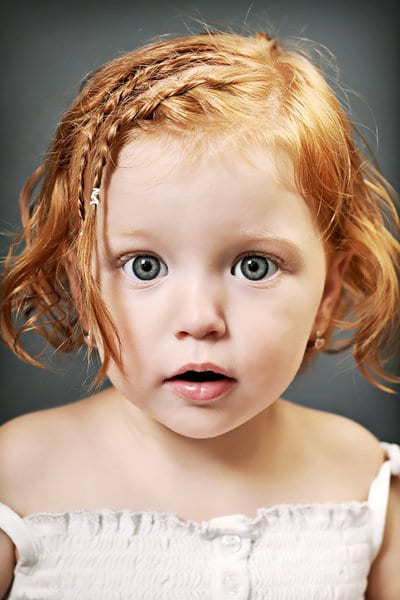
Binnie
Binnie means “crib, wicker basket” and pronounced as BIHNiy.
Blaanid
Blaanid is a Manx variation of Bláthnat which means “little flower”.
Bláithín
Bláithín is a variation of Bláthnat which means “little flower”. Pronounced approximately as blaw-heen.
Blanid
Blanid is an anglicized variation of Bláthnat which means “little flower”.
Bláthnaid
Bláthnaid is a variation of Bláthnat which means “little flower”. (Similar to Bláithín.) Pronounced approximately as BLAE-THNEY-D.
Bláthnat
Bláthnat means “little flower” and pronounced as BLAW-nit. Bláthnat, in Irish myth, is a maiden abducted and married by Cú Roí. She was rescued by Cúchulainn, who killed her husband, but she was in turn murdered by one of Cú Roí’s loyal servants.
Blodeuwedd
Blodeuwedd means “face of flowers” and pronounced as BLOWDWehD. Blodeuwedd, in Welsh myth, is a woman created out of flowers by Gwydion to be the wife of his nephew Lleu Llaw Gyffes. She is eventually changed into an owl for her infidelity.
Blodeuyn
Blodeuyn means “flower”.
Blodwen
Blodwen means “white flowers” and pronounced as BLOD-wehn.
Boudicca
Boudicca means “victory” and pronounced as BOO-di-kah. Boudicca is the name of a first century queen who led her Brittonic Iceni tribe in revolution against the Romans occupying England.
Branwen
Branwen means “blessed raven” and pronounced as BRAN-wehn. Branwen, in Welsh myth, is the sister of the British king Bran and the wife of the Irish king Matholwch.
Breda
Breda is an anglicized variation of Bríd which means “exalted one”.
Bree
Bree is an anglicized variation of Brígh which means “power, high”. Pronounced as BREE.
Breeshey
Breeshey is a Manx variation of Bridget which means “exalted one”. Pronounced as BREE-shah.
Brenda
Brenda means “blade of a sword” and pronounced as BREHND-ah.
Briallen
Briallen means “primrose” and pronounced as bree-AHSH-en or BRiy-AA-HHLahN.
Bríd
Bríd is a modern variation of Brighid which means “exalted one”. Pronounced as BREED.
Bride
Bride is an anglicized variation of Bríd which means “exalted one”.
Bridget
Bridget means “exalted one” and pronounced as BRIJ-it. Bridget, in Irish myth, is the goddess of fire, poetry and wisdom, the daughter of the god Dagda.
Bridie
Bridie is a variation of Bride which means “exalted one”. Pronounced as BRIYDiy-.
Brígh
Brígh means “power, high” and pronounced as BREE.
Brighid
Brighid is an irish variation of Bridget which means “exalted one”. Pronounced as BREE-yeed or BRIYG-IYD.
Brigid
Brigid is a spelling variation of Brighid which means “exalted one”.
Brittany
Brittany means “from Briton” and pronounced as BRIT-ah-nee or BRIT-nee.
Brónach
Brónach means “sorrow” and pronounced approximately as BROH-NAKK.
Bronagh
Bronagh is an anglicized variation of Brónach which means “sorrow”. Pronounced as BROH-Nahh.
Bronwen
Bronwen means “fair bosom” and pronounced as BRAHN-wen or BRAWN-wehn.
Bronwyn
Bronwyn is a variation of Bronwen which means “fair bosom”. Pronounced as BRAHNWihN.
Cadi
Cadi is a diminutive variation of Catrin which means “pure”.
Cáit
Cáit is a diminutive variation of Caitríona which means “pure; torture”. Pronounced as KAHT or KAYT.
Caitlín
Caitlín is a variation of Katherine which means “pure”. Pronounced as KAT-liy-een.
Caitlin
Caitlin is an anglicized variation of Caitlín which means “pure”. Pronounced as KAT-liy-een or KAYT-lin.
Caitria
Caitria is a diminutive variation of Caitríona which means “pure; torture”. (Similar to Cáit.)
Caitríona
Caitríona means “pure; torture”.
Caoileann
Caoileann is a variation of Caoilfhionn which means “slender and fair”. Pronounced approximately as kai-linn.
Caoilfhionn
Caoilfhionn means “slender and fair” and pronounced as KEEL-een or K-AW-LFHHIYAHN-. Caoilfhionn was the name of several Irish saints.
Caoilinn
Caoilinn is a diminutive variation of Caoilfhionn which means “slender and fair”.
Caoimhe
Caoimhe means “beautiful, gentle, kind” and pronounced as KEE-va or kwee-va.
Carys
Carys means “love” and pronounced as CA-riss or KAHR-is. Carys is a relatively modern Welsh name, in common use only since the middle of the 20th century.
Cathleen
Cathleen is a spelling variation of Kathleen which means “pure”. Pronounced as KATH-leen.
Catrin
Catrin is a diminutive variation of Catherine which means “pure”. Pronounced as KAT-rin.
Catrina
Catrina is a diminutive variation of Catriona which means “pure; torture”.
Catriona
Catriona is a spelling variation of Caitríona which means “pure; torture”. Pronounced as ka-TREE-na or ka-TREE-o-na.
Ceinwen
Ceinwen means “blessed and beautiful”.
Ceridwen
Ceridwen means “poetry; fair; white; blessed” and pronounced as keh-RID-wehn. Ceridwen, in Welsh legend, is a sorceress or goddess who created a potion that would grant wisdom to her son Morfan.
Cerridwen
Cerridwen is a spelling variation of Ceridwen which means “poetry; fair; white; blessed”.
Cerridwyn
Cerridwyn is a variation of Ceridwen which means “poetry; fair; white; blessed”. Pronounced as keh-RID-WihN.
Cerys
Cerys is a variation of Carys which means “love”. Pronounced as keh-rihs.
Chevonne
Chevonne is an anglicized variation of Siobhán which means “Yahweh is merciful”. Pronounced as -SHeh-VAON.
Ciannait
Ciannait is a variation of Cian which means “ancient”. Pronounced approximately as kee-naa.
Ciara
Ciara is a variation of Ciar which means “dark one; dark-haired one”. Pronounced as KEER-a or Siy-EH-Rah.
Cleena
Cleena is an anglicized variation of Clíodhna which means “shapely”.
Clíodhna
Clíodhna means “shapely” and pronounced as KLEE-u-na or KLIY-Naa-. Clíodhna, in Irish legend, is the name of a beautiful goddess who fell in love with a mortal named Ciabhan and left the Land of Promise with him.
Clíona
Clíona is a diminutive variation of Clíodhna which means “shapely”. Pronounced approximately as KLEE-na.
Clodagh
Clodagh means “limping” and is an Ireland river place-name. Pronounced as KLAW-dah.
Concepta
Concepta means “conception”.
Cordelia
Cordelia means “heart; daughter of the sea” and pronounced as kawr-DEE-lee-ah or kawr-DEEL-yah. Cordeilla was the name of the youngest daughter of King Lear and the only one to remain loyal to her father.
Crystin
Crystin is a diminutive variation of Christine which means “Christian woman”. Pronounced as KRIHS-TihN.
Dáiríne
Dáiríne means “fruitful, fertile” and pronounced approximately as dah-rihn.
Damhnait
Damhnait means “fawn” and pronounced as DEV-nawt.
Danu
Danu is the Celtic goddess of fruitfulness. Pronounced as DAH-noo.
Darina
Darina is an anglicized variation of Dáiríne which means “fruitful, fertile”.
Dearbháil
Dearbháil means “daughter of Fál” or “true desire” and pronounced as DDA-rah-wal or dare-voll.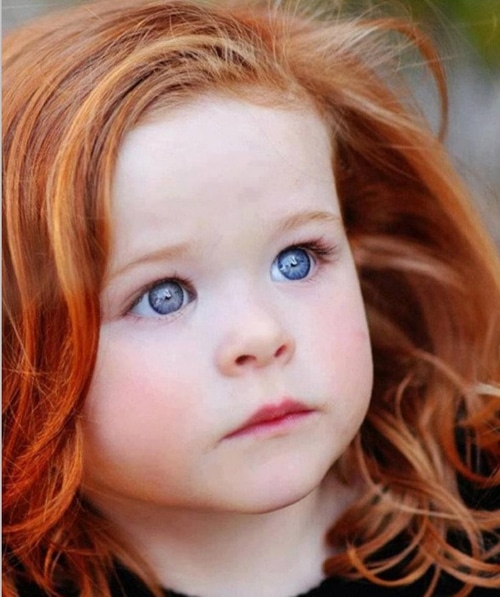
Deirbhile
Deirbhile means “daughter of a poet” and pronounced approximately as der-bhill. Deirbhile was the name of famous a 6th-century Irish saint.
Deirdre
Deirdre means “raging; brokenhearted; sorrowful” and pronounced as deer-drah. Deirdre is the name of a tragic character in Irish legend who died of a broken heart after Conchobhar, the king of Ulster, forced her to be his bride and killed her lover Naoise.
Delma
Delma means “beauty” or “noble protector” and pronounced as DEHL-mah.
Delyth
Delyth means “pretty” or “neat” and pronounced as DEHL-ih-TH.
Derval
Derval is a variation of Deirbhile which means “daughter of a poet”.
Dervila
Dervila is a variation of Derval which means “daughter of a poet”. Pronounced as DEHR-vihla.
Dervla
Dervla is a variation of Derval which means “daughter of a poet”. (Similar to Dervila.) Pronounced as D-ERVLAH.
Deryn
Deryn is a variation of Aderyn which means “bird”. Pronounced as DARE-rin.
Devnet
Devnet is an anglicized variation of Damhnait which means “fawn”. Pronounced as DEHV-neht.
Dilwen
Dilwen is a feminine variation of Dilwyn which means “genuine and white”. Pronounced as DIHLWehN.
Dilys
Dilys means “genuine” and pronounced as DIHL-ihS-.
Doireann
Doireann means “sullen, tempestuous” and pronounced as DEH-rrahn. Doireann is the name of several characters in Irish legend.
Dylis
Dylis is a spelling variation of Dilys which means “genuine”.
Dymphna
Dymphna is an anglicized variation Damhnait which means “fawn”. Pronounced as DIMF-na. Dymphna is the name of the patron saint of the mentally ill.
Dympna
Dympna is a spelling variation of Dymphna which means “fawn”.
Éabha
Éabha is an Irish variation of Eve which means “life”. Pronounced as AY-va.
Eadan
Eadan is a diminutive variation of Éadaoin which means “jealousy”. Pronounced as EH-dahn.
Éadaoin
Éadaoin is a modern variation of Étaín which means “jealousy”. Pronounced as EH-deen.
Ealisaid
Ealisaid is a Manx variation of Elizabeth which means”pledged to God”. Pronounced approximately as IY-LihSEH-D.
Eavan
Eavan is an anglicized variation of Aoibheann which means “beautiful sheen; fair radiance”. Pronounced as EE-van.
Edna
Edna means “kernel” and pronounced as EHD-nah. (Similar to Aithne.)
Efa
Efa is a Welsh variation of Eva which means “life”. Pronounced as EHFAH.
Eibhlín
Eibhlín is an Irish variation of Aveline which means “desired”. Pronounced as IE-leen, EV-leen, EV-e-leen or AYV-leen.
Eileen
Eileen means “bright, shining one” or “desired”.
Eilís
Eilís is an Irish Gaelic variation of Elizabeth which means “pledged to God”. Pronounced as eye-lish.
Eilish
Eilish is an anglicized variation of Eilís which means “pledged to God”.
Eiluned
Eiluned is a variation of Eluned which means “image, idol”. Pronounced approximately as –AYLAHN-D.
Eilwen
Eilwen means “white brow” and pronounced as EY-LWehN.
Eimear
Eimear is a variation of Éimhear which means “swift; ready”. Pronounced as –AYMIH-R.
Éimhear
Éimhear means “swift; ready” and pronounced as ehM-er.
Eira
Eira means “snow” and pronounced as –AY-Raa- or –OYRaa.
Eireann
Eireann means “Irish woman” and pronounced as ER-in or EHR-ahn.
Eireen
Eireen is an Irish variation of Irene which means “peaceful”. Pronounced as ie-REEN.
Eirlys
Eirlys means “snow fall” and pronounced as EY-RLihS.
Eirwen
Eirwen means “white snow; blessed snow” and pronounced as EY-RWehN.
Eithne
Eithne means “kernel, grain” and pronounced as ETH-na, ET-na, EN-ya, or EN-a. Eithne was the name of a 5th-century Irish saint, sister of Saint Fidelma and follower of Saint Patrick.
Elain
Elain means “fawn; hind” and pronounced as eh-LEYN-.
Elen
Elen means “bright, shining light” and pronounced as EHL-ehn.
Eleri
Eleri means “enough” or “greatly bitter” and pronounced as eh-LEH-Riy-.
Elin
Elin is a variation of Elen which means “bright, shining light”. Pronounced as EH-lin.
Eluned
Eluned means “image, idol” and pronounced as ehl-IN-ed or ehl-EEN-ehd. Eluned was the name of a famous 5th-century Welsh saint.
Elva
Elva means “leader of the elves” and pronounced as EHLVaa-.
Emer
Emer means “swift” and pronounced as EE-mur or EY-M-er. Emer, in Irish myth, is the wife of Cúchulainn who is said to possess the six gifts of womanhood: beauty, voice, speech, needlework, wisdom and chastity.
Ena
Ena is an anglicized variation of Eithne which means “kernel, grain”. Pronounced as EH-Naa-.
Enid
Enid means “soul; life” and pronounced as EHN-ihd. Enid is the wife of Geraint in Welsh legend and Arthurian romance.
Enya
Enya is an anglicized variation of Eithne which means “kernel, grain”. (Similar to Ena.) Pronounced as EHN-yah.
Erin
Erin is an anglicized variation of Eireann which means “Irish woman”. Pronounced as EHR-in.
Esyllt
Esyllt is a variation of Isolde which means “ice ruler”. Pronounced approximately as EH-Siy-.
Étaín
Étaín means “jealousy” and pronounced as AY-teen. Étaín, in Irish myth, is the sun and horse goddess who was the lover of Midir.
Ethna
Ethna is an anglicized variation of Eithne which means “kernel, grain”. (Similar to Ena and Enya.) Pronounced as EHTNaa.
Ethne
Ethne is a variation of Ethna which means “kernel, grain”. Pronounced approximately as ehn-yeh.
Etna
Etna is a spelling variation of Ethna which means “kernel, grain”.
Eurwen
Eurwen means “gold and white” and pronounced as EHR-whin or EY-RWehN.
Fedelma
Fedelma means “beauty; forever good”.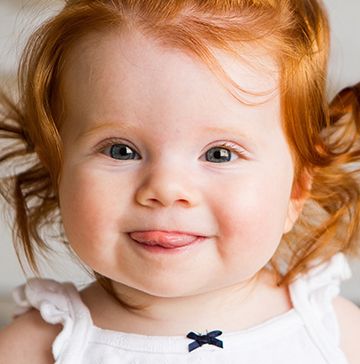
Feidhelm
Feidhelm is a variation of Fedelma which means “beauty; forever good”. Pronounced approximately as Fiy-DehLM.
Fenella
Fenella means “white-shouldered one” and pronounced as FeyNiyLaa or Feh-neh-lah.
Ffion
Ffion means “foxglove” or “fair; blond” and pronounced as FEE-awn or FI-awn.
Fflur
Fflur means “flower” and pronounced as Fleer. (Similar to Blodeuyn.)
Ffraid
Ffraid is a Welsh variation of Bridget which means “exalted one”. Pronounced as FRaeD-.
Fidelma
Fidelma is a spelling variation of Fedelma which means “beauty; forever good”.
Finnguala
Finnguala is an older variation of Fionnuala which means “white shoulder”. Pronounced as FIHNNGGWAALAH.
Finnuala
Finnuala is a variation of Fionnuala which means “white shoulder”. Pronounced approximately as fin-OO-la.
Finola
Finola is an anglicized variation of Fionnuala which means “white shoulder”.
Fíona
Fíona means “vine”.
Fionnghuala
Fionnghuala is a variation of Fionnuala which means “white shoulder”. (Similar to Finnuala.)
Fionnuala
Fionnuala means “white shoulder” and pronounced as FihN-UW-Laa-. Fionnuala, in Irish myth, is one of the four children of Lir who were transformed into swans for a period of 900 years.
Fionola
Fionola is a variation of Finola which means “white shoulder”.
Frañseza
Frañseza is a variation of Francis which means “Frenchman; free one”.
Gaëlle
Gaëlle is a feminine variation of Gaël which means “Irishman”. Pronounced as GA-EHL.
Gaenor
Gaenor means “white and smooth” and pronounced as GAY-nawr.
Gladys
Gladys means “ruler; country; princess” and pronounced as GLAD-is.
Glenda
Glenda means “from the valley” or “pure and good” and pronounced as GLEHN-dah.
Glenice
Glenice is a variation of Glenys which means “pure, clean, holy”. Pronounced as GLEHN-niece.
Glennis
Glennis is a spelling variation of Glenice which means “pure, clean, holy”.
Glenys
Glenys means “pure, clean, holy” and pronounced as GLEHN-ihS-.
Glynis
Glynis means “small glen; valley” and pronounced as GLIHNNihS.
Gobinet
Gobinet is a variation of Gobnait which means “little smith”.
Gobnait
Gobnait is a feminine variation of Gobán which means “little smith”. Pronounced as GAWB-net. Gobnait was the name of a 6th-century Irish abbess, the patron saint of Ballyvourney.
Gobnet
Gobnet is an anglicized variation of Gobnait which means “little smith”.
Gormflaith
Gormflaith is a variation of Gormlaith which means “blue princess”. Pronounced approximately as GAORM-fley.
Gormlaith
Gormlaith means “blue princess” and pronounced as GAORMLaa- or gorm-lee. Gormlaith was the name of a wife of the 11th-century Irish ruler Brian Boru.
Gráinne
Gráinne means “grain” and pronounced as GRAW-n-nah or GROWNYuw-. Gráinne is the name of an ancient Irish grain goddess and also belonged to the fiancée of Fionn mac Cumhail and the lover of Diarmaid in later Irish legend, and it is often associated with gráidh “love”.
Grania
Grania is a variation of Gráinne which means “grain”. Pronounced as GRAHN-yah.
Granya
Granya is a spelling variation of Grania which means “grain”.
Gwawr
Gwawr means “dawn” and pronounced as Guwao-R.
Gwen
Gwen is a feminine diminutive variation of Gwenneg which means “white; fair; blessed”. Pronounced as GWEHN.
Gwenaëlle
Gwenaëlle is a feminine variation of Gwenaël which means “blessed and generous”. Pronounced as GWE-NA-EL.
Gwenda
Gwenda means “fair and good” or “white circle; moon” and pronounced as GWEHN-Dah.
Gwendolen
Gwendolen means “white ring” and pronounced as GWEHN-Dah-LihN. Gwendolen is the name of a mythical queen of the Britons who defeated her husband in battle, as told by Geoffrey of Monmouth.
Gwendoline
Gwendoline is a variation of Gwendolen which means “white ring”. Pronounced as GWEHN-dah-lin.
Gwendolyn
Gwendolyn is a spelling variation of Gwendoline which means “white ring”.
Gweneth
Gweneth means “blessed; happy” and pronounced as GWEHN-ith.
Gwenfrewi
Gwenfrewi means “friend of peace” or “blessed reconciliation” and pronounced approximately as GWEHNVReh-Wiy-.
Gwenith
Gwenith is a variation of Gweneth which means “blessed; happy”. Pronounced as GWEHN-ith.
Gwenllian
Gwenllian means “white foam”. Gwenllian was popular among medieval Welsh royalty. Pronounced as GWehNHHLIY-aeN.
Gwenneth
Gwenneth is a spelling variation of Gweneth which means “blessed; happy”. Pronounced as GWEHN-ith.
Gwenyth
Gwenyth is a spelling variation of Gwenith which means “blessed; happy”. Pronounced as GWEHN-ith.
Gwladus
Gwladus is the original variation of Gladys which means “ruler; country; princess”. Pronounced approximately as GLaad-us.
Gwladys
Gwladys is a variation of Gladys which means “ruler; country; princess”. Pronounced as GLAADihS.
Gwyneira
Gwyneira means “white snow” and pronounced as GWihN-AY-Raa.
Gwyneth
Gwyneth means “white circle; moon” or “happiness; luck” and pronounced as GWIN-eth.
Haf
Haf is a variation of Hefina which means “summer”. Pronounced as HahV.
Hefina
Hefina is a feminine variation of Hefin which means “summer”. Pronounced as he-fi-nah.
Heledd
There is no specific meaning for Heledd. Pronounced as HEHL-edh. Heledd was the name of a semi-legendary 7th-century Welsh princess.
Heulwen
Heulwen means “sunshine” and pronounced as HAYL-wehn or HIEL-wen.
Honora
Honora means “woman of honor”.
Hyledd
Hyledd is a variation of Heledd which is a name with no specific meaning.
Íde
Íde means “thirst” and pronounced as EE-da.
Immaculata
Immaculata means “immaculate” and pronounced as ima-kyu-la-tah.
Immy
Immy is a variation of Imogen which means “maiden”. Pronounced as ih-mee.
Imogen
Imogen means “maiden” and pronounced as IHM-eh-jen.
Isibéal
Isibéal is an Irish variation of Isabel which means “God is my oath”. Pronounced approximately as i-shi-behl.
Ita
Ita means “thirst” or “rich in war” and pronounced as IY-Taa-.
Iúile
Iúile is an Irish variation of Julia which means “youthful” or “jupiter’s child”.
Katarin
Katarin is a Breton variation of Katherine which means “pure”. Pronounced as kah-tah-REEn.
Katell
Katell is a variation of Katarin which means “pure”. Pronounced as KAA-T-ehL.
Kathleen
Kathleen is an anglicized variation of Caitlín which means “pure”. Pronounced as KATH-leen. 
Keavy
Keavy is an anglicized variation of Caoimhe which means “beautiful, gentle, kind”. Pronounced as KEE-vee.
Keelin
Keelin is an anglicized variation of Caoilfhionn which means “slender and fair”. Pronounced as KEE-lin.
Keeva
Keeva is a variation of Keavy which means “beautiful, gentle, kind”. Pronounced as KEE-va.
Kiera
Kiera is an anglicized variation of Ciara which means “dark one; dark-haired one”. Pronounced as KEER-ah.
Laoise
Laoise means “light” and pronounced as lee-sha.
Léan
Léan is a variation of Elen which means “bright, shining light”. (Similar to Elin.)
Lewella
Lewella is a spelling variation of Llewella which means “lion-like; shining one; leader”. Pronounced as L-UWEHL-AH.
Líadáin
Líadáin is a spelling variation of Líadan which means “grey lady”. Pronounced as LEE-din.
Líadan
Líadan means “grey lady” and pronounced as LEE-uh-din or LEE-din.
Líle
Líle is an Irish variation of Lily which is a flower name.
Lleucu
Lleucu means “dear light” and pronounced approximately as HHLIY-K-uw.
Llewella
Llewella means “lion-like; shining one; leader” and pronounced approximately as L-UWEHL-AH.
Llinos
Llinos means “linnet, finch” and pronounced as SHI-naws or HHLIHN-aaS.
Lowri
Lowri means “laurel; light” and pronounced as LOW-Riy-.
Luíseach
Luíseach means “shining one; light” and pronounced as LEE-shahkh or LAH-SIY-CH-.
Luned
Luned is a variation of Eluned which means “image, idol”. Pronounced as LIN-ed. Luned, in Welsh myth, is a servant of the Lady of the Fountain who rescues the knight Owain.
Mabyn
Mabyn “youth; ever young” and pronounced as mah-bihn or MEYBihN.
Madailéin
Madailéin means “of Magdala”.
Maela
Maela is a feminine variation of Maël which means “disciple; prince; chief”. Pronounced approximately as mai-lah.
Maëlle
Maëlle is a variation of Maela which means “disciple; prince; chief”. Pronounced as MA-EHL.
Maeve
Maeve means “intoxicating” and pronounced as MAYV. Maeve, in Irish myth, is the name of a warrior queen of Connacht.
Mair
Mair is a Welsh variation of Mary which means “bitter”. Pronounced as MIER or MAYer-.
Máire
Máire is a variation of Mair which means “bitter”. Pronounced as MAH-ryah or MAO-RYaa-.
Mairéad
Mairéad means “pearl” and pronounced as MEH-R-AED.
Mairenn
Mairenn is a variation of Máirín which means “bitter”. Pronounced as MEH-rehn.
Máirín
Máirín is an Irish variation of Mary which means “bitter”. Pronounced as MOI-reen or MAW-reen.
Mairwen
Mairwen means “fair Mary” and pronounced as MAYer-WehN.
Mallaidh
Mallaidh is an Irish variation of Mary which means “bitter”. (Similar to Máirín.) Pronounced approximately as MAEL-EY-D-.
Mallt
Mallt means “mighty in battle” and pronounced as Maa-L-.
Mared
Mared is a Welsh variation of Mairéad which means “pearl”. Pronounced as MAAR-ehD.
Margaid
Margaid is a Manx variation of Mairéad which means “pearl”. Pronounced as MAHR-ged.
Marged
Marged is a variation of Mared which means “pearl”. Pronounced as MAA-RGehD.
Mari
Mari is a Welsh and Breton variation of Maria which means “bitter”. Pronounced as mah-REE.
Maura
Maura means “great” or “bitter” and pronounced as MAWR-ah or MAOR-aa-. Maura was the name of an obscure 5th-century Irish or Scottish martyr.
Maureen
Maureen is an anglicized variation of Máirín which means “bitter”. Pronounced as maw-REEN.
Maurine
Maurine is a spelling variation of Maureen which means “bitter”.
Mave
Mave is a spelling variation of Maeve which means “intoxicating”. Pronounced as MAYV.
Mavourneen
Mavourneen means “my darling” and pronounced approximately as mah-vohr-neen.
Méabh
Méabh is a variation of Maeve which means “intoxicating”. Pronounced as MAYV.
Meadhbh
Meadhbh is a variation of Méabh which means “intoxicating”. Pronounced as MYEHV.
Meave
Meave is a variation of Maeve which means “intoxicating”. (Similar to Méabh.) Pronounced as MIYV or MAIV.
Megan
Megan is a diminutive variation of Margaret which means “pearl”. Pronounced as MEHG-ahn.
Meinir
Meinir means “maiden” and pronounced as MEY-NIHR. (Similar to Imogen.)
Meinwen
Meinwen means “slender and white” and pronounced as MEY-NWehN.
Meiriona
Meiriona is a feminine variation of Meirion which means “gleaming” or “war-like”. Pronounced approximately as MEHR-YOH-NAH.
Melvina
Melvina means “chieftain” and pronounced as mel-VEEN-a.
Mererid
Mererid is a Welsh variation of Margaret which means “pearl”. Pronounced as Meh-REH-RihD.
Moira
Moira means “fate, destiny” and pronounced as MOI-rah.
Móirín
Móirín is a variation of Mór which means “great”. Pronounced as MOI-RIHN.
Moirrey
Moirrey is a Manx variation of Mary which means “bitter”. Pronounced as MUW-rah or MAH-Raa-.
Mona
Mona means “noble good” and pronounced as MO-nah.
Monat
Monat is an anglicized variation of Muadhnait which means “little noble one”.
Moreen
Moreen means “little Mary” or “big; great” and pronounced as maw-REEN.
Morna
Morna is an anglicized variation of Muirne which means “festive”. Pronounced as MOR-NAH.
Morwen
Morwen is a diminutive variation of Morwenna which means “maiden”. Pronounced as MOR-WHEN.
Morwenna
Morwenna means “maiden” and pronounced as MOR-WHEN-NAH. (Similar to Imogen and Meinir.)
Moyna
Moyna is a variation of Mona which means “noble good”. Pronounced as MOYNAH.
Moyra
Moyra is a spelling variation of Moira which means “fate, destiny”. Pronounced as MOY-RAH.
Muadhnait
Muadhnait means “little noble one” and pronounced as MOO-nat.
Muireann
Muireann is a variation of Muirenn which means “sea; white; fair”. Pronounced as MWuw-RehN.
Muirenn
Muirenn means “sea; white; fair” and pronounced as mur-rehn.
Muirgel
Muirgel means “bright sea” and pronounced as mur-gehl.
Muirgen
Muirgen means “born of the sea” and pronounced as mur-in. Muirgen, in Irish myth, is the name of a woman (originally named Líban) who was transformed into a mermaid.
Muirgheal
Muirgheal is a modern variation of Muirgel which means “bright sea”. Pronounced approximately as M-erYaa-L.
Muirín
Muirín is a modern variation Muirgen which means “born of the sea”. Pronounced as muh-rihn.
Muriel
Muriel means “of the bright sea” and pronounced as MYUWR-ee-ahl or M-erYEHL-.
Murna
Murna is a variation of Morna which means “festive”. Pronounced as MUR-na.
Myf
Myf is a diminutive variation of Myfanwy which means “my woman” or “sweet woman”. Pronounced as MIPH.
Myfanwy
Myfanwy means “my woman” or “sweet woman” and pronounced as muh-VAHN-wee.
Myrna
Myrna is an anglicized variation of Muirne which means “festive”. (Similar to Morna.) Pronounced as MUR-na or M-ERNaa-.
Nainsí
Nainsí is an Irish variation of Nancy which means “God was gracious”. Pronounced as nancy. 
Nara
Nara means “happy”.
Naomh
Naomh means “holy” and pronounced as NEEV or NEHV.
Neasa
Neasa means “hunger; lamb; one” and pronounced as NYAS-a or NAS-a. (Similar to Aignéis.)
Neassa
Neassa is a spelling variation of Neasa which means “hunger; lamb; one”.
Nerys
Nerys means “lady” or “noblewoman” and pronounced as NER-iss.
Nessa
Nessa is an anglicized variation of Neasa which means “hunger; lamb; one”. Pronounced as NEHS-a.
Nest
Nest is a Welsh variation of Agnes which means “pure; chaste”.
Nesta
Nesta is a variation of Nest which means “pure; chaste”. Pronounced as NEHSTaa-.
Neve
Neve is an anglicized variation of Niamh which means “bright”. Pronounced as NIY-V.
Nia
Nia is a Welsh variation of Niamh which means “bright”. Pronounced as NIY-aa-.
Niamh
Niamh means “bright” and pronounced as neev or NIY-AHV. Niamh, in Irish myth, is the daughter of the sea god who fell in love with the poet Oisín, son of Fionn.
Nóirín
Nóirín is an Irish variation of Nora which means “honor” or “light”. Pronounced as NOH-reen.
Nola
Nola is a diminutive variation of Finola which means “white shoulder”. Pronounced as NO-lah.
Nolwenn
Nolwenn means “holy one from Noyal” and pronounced as NOL-wehn.
Non
Non means “nun”.
Nóra
Nóra is an Irish Gaelic variation of Nora which means “honor” or “light”. Pronounced as NO-rah.
Nora
Nora means “honor” or “light” and pronounced as NAWR-ah.
Norah
Norah is a spelling variation of Nora which means “honor” or “light”.
Noreen
Noreen is a variation of Nora which means “honor” or “light”. Pronounced as naw-REEN.
Norene
Norene is a spelling variation of Noreen which means “honor” or “light”.
Nuala
Nuala is a diminutive variation of Fionnuala which means “white shoulder”. Pronounced as NOO-la or NOO-ah-lah.
Oanez
Oanez means “lamb” and pronounced approximately as OWae-N-ehZ.
Odharnait
Odharnait means “little pale green one” or “pale green; sallow” and pronounced approximately as AADHHAARNEY-T.
Olwen
Olwen means “white footprint” and pronounced as OW-LWehN. Olwen, in Welsh legend, is a beautiful maiden who is the lover of Culhwch and the daughter of the giant Yspaddaden.
Olwin
Olwin is a variation of Olwen which means “white footprint”. Pronounced as OL-wihn.
Olwyn
Olwyn is a spelling variation of Olwin which means “white footprint”.
Onóra
Onóra is an Irish variation of Honora which means “honor”. Pronounced as o-noh-rah.
Oona
Oona is an Irish variation of Úna which means “lamb”. Pronounced as OO-nah.
Oonagh
Oonagh is a variation of Oona which means “lamb”. Pronounced as OO-na.
Órfhlaith
Órfhlaith means “golden princess” and pronounced as OR-la or AORLaa. Órfhlaith was the name of a sister of the Irish king Brian Boru.
Orla
Orla is an anglicized variation of Órfhlaith which means “golden princess”.
Orlagh
Orlagh is a variation of Orla which means “golden princess”. Pronounced as OR-lah or aoRLAHG-.
Órlaith
Órlaith is a variation of Órfhlaith which means “golden princess”. Pronounced as OR-la.
Orna
Orna is an anglicized variation of Odharnait which means “little pale green one” or “pale green; sallow”. Pronounced as OR-nah.
Ornat
Ornat is a variation of Orna which means “little pale green one” or “pale green; sallow”.
Owena
Owena is a feminine variation of Owen which means “lamb; youth” or “born of the yew”. Pronounced as ow-WEHN-aa-.
Paaie
Paaie is a Manx variation of Margaret which means “pearl”. Pronounced approximately as pah-yeh.
Pádraigín
Pádraigín is an Irish variation of Patricia which means “noblewoman”. Pronounced as PAW-dri-geen.
Piala
There is no specific meaning for Piala.
Pixie
Pixie means “fairy”.
Raghnailt
Raghnailt means “advice; council” or “ewe” and pronounced as RAY-nahlt.
Ráichéal
Ráichéal is an Irish variation of Rachel which means “ewe”. Pronounced as RA-hehl.
Rathnait
Rathnait means “grace, prosperity” and pronounced as RA-naht.
Rhiannon
Rhiannon means “great queen” and pronounced as ree-AN-awn. Rhiannon is speculated to be the name of an otherwise unattested Celtic goddess of fertility and the moon.
Rhianon
Rhianon is a spelling variation of Rhiannon which means “great queen”.
Rhianu
Rhianu is a variation of Rhian which means “maiden” or “descendant of the little king”. Pronounced approximately as R-iy-AEN-uw.
Rhonwen
Rhonwen means “fair spear” or “fair hair” and pronounced as RON-wehn.
Rhosyn
Rhosyn means “rose” and pronounced as ROH-sihn.
Riannon
Riannon is a spelling variation of Rhiannon which means “great queen”. (Similar to Rhianon.) Pronounced as ree-AN-awn.
Ríona
Ríona means “queenly” and pronounced as RIY-ow-Naa-.
Ríonach
Ríonach means “queen” and pronounced as RIY-ow-Nakk-.
Róis
Róis is a diminutive variation of Rhosyn which means “rose”. Pronounced as RAA-SH.
Róisín
Róisín is an Irish variation of Rhosyn which means “rose”. Pronounced as ROSH-een.
Ronit
Ronit is an anglicized variation of Rathnait which means “grace, prosperity”. Pronounced as ROH-nit.
Rosheen
Rosheen is an anglicized variation of Róisín which means “rose”.
Rozenn
Rozenn is a Breton variation of Rhosyn which means “rose”. Pronounced as ROWZehN.
Sabrina
Sabrina means “thorny cactus” and pronounced as sah-BREEN-ah. Sabrina, in Celtic myth, is a water nymph who inhabits the River Severn.
Sadb
Sadb means “sweet, goodly” and pronounced as SIEV or SAYV. Sadb, in Irish myth, is the mother of Oisín.
Sadbh
Sadbh is a variation of Sadb which means “sweet, goodly”. Pronounced as SAYV.
Sadhbh
Sadhbh is a modern Irish variation of Sadb which means “sweet, goodly”. Pronounced as SAYV.
Saibh
Saibh is a variation of Sadb which means “sweet, goodly”. (Similar to Sadbh.) Pronounced as SAYV or SEY-B-.
Saoirse
Saoirse means “freedom” and pronounced as SEER-shah or SIY-ER-SHah.
Saraid
Saraid means “excellent” or “best” and pronounced as SaoR-ihD or sah-rehd.
Séarlait
Séarlait is an Irish variation of Charlotte which means “free man”. Pronounced as SHAHR-lat.
Seren
Seren means “star” and pronounced as SEH-rehn.
Shavonne
Shavonne means “the Lord is gracious” and pronounced as shah-VAHN.
Sheila
Sheila means “blind one” and pronounced as SHEE-lah.
Shevaun
Shevaun is a variation of Shavonne which means “the Lord is gracious”. Pronounced as shah-VAHN.
Shevon
Shevon is a spelling variation of Shevaun which means “the Lord is gracious”. Pronounced as shah-VAHN.
Siân
Siân is a Welsh variation of Seán which means “Yahweh is gracious”. Pronounced as SHAN.
Siana
Siana is a variation of Siân which means “Yahweh is gracious”. Pronounced as see-ahh-nah.
Siani
Siani is a variation of Siân which means “Yahweh is gracious”. (Similar to Siana.) Pronounced as see-ahh-nee.
Sibéal
Sibéal is a variation of Isibéal which means “God is my oath”. Pronounced approximately as SIHB-AHL.
Síle
Síle means “blind” or “a fairy child” and pronounced as SHEE-la.
Síne
Síne is an Irish variation of Jeanne which means “Yahweh is merciful”. Pronounced as SHEE-na.
Sinéad
Sinéad is an Irish variation of Jeannette which means “Yahweh is merciful”. Pronounced as SHI-nnehd or shi-NAYD.
Siobhán
Siobhán is an Irish variation of Jeanne which means “Yahweh is merciful”. (Similar to Síne.) Pronounced as shi-VAWN or SHI-wan.
Siofra
Siofra means “elf; changeling; sprite” and pronounced as SHEEF-ruh.
Síomha
Síomha is a variation of Síthmaith which means “good peace”. Pronounced as SHEE-va.
Sioned
Sioned is a Welsh variation of Janet which means “Yahweh is merciful”. Pronounced as SHON-ed.
Síthmaith
Síthmaith means “good peace”.
Sive
Sive is an anglicized variation of Sadb which means “sweet, goodly”. Pronounced as SIEV.
Siwan
Siwan is a Welsh variation of Joan which means “Yahweh is merciful”.
Sorcha
Sorcha means “radiant” and pronounced as SAWR-ah-khah or SAWR-khah.
Talulla
Talulla means “lady of abundance” and pronounced as ta-loo-lah.
Tegwen
Tegwen means “fair, lovely, shining” and pronounced as tehg-wehn or TIYGWehN.
Tesni
Tesni means “warmth from the sun” and pronounced as TESS-nee.
Tiwlip
Tiwlip means “tulip” and pronounced approximately as TIYowLihP.
Toiréasa
Toiréasa is an Irish variation of Theresa which means “to harvest”. Pronounced approximately as TWaaREH-ZAH.
Treasa
Treasa means “to harvest” or “strength” and pronounced as TRA-sa or TREY-Saa-.
Trista
Trista is a diminutive variation of Tristan which means “noise” or “sorrowful”. Pronounced as TRIS-tah.
Tristana
Tristana is a feminine variation of Triston which means “noise” or “sorrowful”. Pronounced as tree-STAH-nah.
Ula
Ula means “gem of the sea” and pronounced as UW-Laa-.
Úna
Úna means “lamb” and pronounced as OO-na. (Similar to Oanez.)
Voirrey
Voirrey is a variation of Moirrey which means “bitter”. Pronounced as VOH-Raa- or VAH-Raa-.
Winifred
Winifred means “blessed peacemaking” and pronounced as WIN-ah-frid or WIHN-ih-FRehD.
Winnifred
Winnifred is a spelling variation of Winifred which means “blessed peacemaking”.
Gender-Neutral Names
Aeron
Aeron means “berry” and pronounced as EY-R-aaN.
Afon
Afon means “river”.
Aidan
Aidan means “fire; brightness; splendor” and pronounced as EY-DahN.
Ailbhe
Ailbhe means “white” and pronounced as AL-va or AELVah-. Ailbhe, in Irish myth, is the name of a female warrior of the Fianna.
Alwyn
Alwyn refers to the River Alwen in Wales. Pronounced as Al-wihn or AELWihN.
Aoibheann
Aoibheann means “beautiful sheen; fair radiance” and pronounced as EE-van. Aoibheann was a name of several Irish royalty.
Aran
Aran is a place name in the west coast of Ireland.
Barrie
Barrie is a spelling variation of Barry which means “spear; fair headed; son of Harry”. Pronounced as BEHR-ee or BAR-ee.
Brett
Brett means “from Brittany” and pronounced as BREHT.
Brice
Brice means “speckled, freckled” and pronounced as BRIES or BRAYS.
Brogan
Brogan means “small shoe” and pronounced as BROH-GAHN. Brogan was the name of several Irish saints.
Bron
Bron is a diminutive variation of Bronwen which means “fair bosom”. Pronounced as BROHN or BRaa-N.
Bryn
Bryn means “hill, mound” and pronounced as BRIN.
Carey
Carey means “descendant of Ciardha” and pronounced as KEHR-ee.
Caron
Caron means “to love”.
Carrol
Carrol is a spelling variation of Carroll which means “hacking with a weapon”.
Carroll
Carroll is an anglicized variation of Cearbhall which means “hacking with a weapon”.
Casey
Casey means “descendant of the vigilant one” and pronounced as KAY-see.
Ceallach
Ceallach means “bright-headed” or “war; strife” and pronounced as KEHL-akh.
Ceri
Ceri means “to love” or “white, fair, blessed” and pronounced as KE-ri.
Christie
Christie is a diminutive variation of Christopher which means “bearing Christ”. Pronounced as KRIS-tee.
Christy
Christy is a spelling variation of Christie which means “bearing Christ”.
Cian
Cian means “ancient” and pronounced as KIYAHN or KIYN. Cian is the name of the mythical ancestor of the Cianachta in Irish legend and was also the name of a son-in-law of Brian Boru.
Ciar
Ciar means “dark one; dark-haired one” and pronounced as KEER.
Clancy
Clancy means “child of the red warrior” and pronounced as KLAN-see.
Cody
Cody means “child of the helpful one” and pronounced as KO-dee.
Dara
Dara means “oak tree” and pronounced as D-AHRaa-.
Darach
Darach is a variation of Dara which means “oak tree”. Pronounced approximately as DAH-rahk.
Derry
Derry is a diminutive variation of Dermot which means “without envy”. Pronounced as DEHRiy.
Devin
Devin means “poet; fawn; little dark one” and pronounced as DEHV-in or DEHV-ahN.
Donnelly
Donnelly means “dark brave one” and pronounced as DOH-neh-lee or DAAN-ehL-iy-.
Doran
Doran means “descendant of the exiled” or “strange”.
Duane
Duane means “descendant of the little dark one” and pronounced as DWAYN.
Eirian
Eirian means “bright and beautiful” and pronounced approximately as ey-RYAE-N.
Ellis
Ellis means “kind” or “my God is Yahweh” and pronounced as EHL-is.
Emlyn
Emlyn means “around the valley” or “imitating; rivaling” and pronounced as EHMLihN.
Enfys
Enfys means “rainbow” and pronounced as EN-viss.
Finley
Finley means “fair-haired hero” and pronounced as FIN-lee.
Finn
Finn means “fair” or “white”. Finn is the name of the greatest hero of Irish mythology, Finn MacCool (aka Fionn mac Cuumhaill), an intrepid warrior with mystical supernatural powers, noted as well for his wisdom and generosity.
Flann
Flann means “red-haired” or “red valor” and pronounced as FLAN. Flan was the name of a 9th-century king of Tara in Ireland.
Flannán
Flannán is a variation of Flann which means “red-haired” or “red valor”. Pronounced as FLAN-ahn.
Glaw
Glaw means “rain”.
Gull
Gull is a bird name and pronounced as guhl. A gull is a long-winged swimming bird.
Gwyn
Gwyn means “white; fair; blessed” and pronounced as GWIN. (Similar to Gwenneg.)
Gwynedd
Gwynedd means “happiness; luck” and pronounced as GWIH-nehd.
Gwynn
Gwynn is a spelling variation of Gwyn which means “white, fair, blessed”.
Keelan
Keelan is a variation of Keelin which means “slender and fair”. Pronounced as kee-lan or kee-luhn.
Keenan
Keenan is an anglicized variation of Cianán which means “little ancient one”. Pronounced as kee-nahn.
Kelly
Kelly means “war” or “church” and pronounced as KEHL-ee.
Kennedy
Kennedy means “misshapen head” and pronounced as KEHN-ah-dee or KEH-Neh-Diy-. Kennedy is a name often given in honor of assassinated American president John F. Kennedy.
Kieran
Kieran is anglicized variation of Ciarán which means “little dark one; little dark-haired one”. Pronounced as KEER-ahn or KEER-awn.
Kieron
Kieron is a spelling variation of Kieran which means “little dark one; little dark-haired one”. Pronounced as KEER-ahn or KEER-awn.
Meredith
Meredith means “great chief” or “sea lord” and pronounced as MEHR-ah-dith.
Morgan
Morgan means “sea-born; sea-song; sea-circle” and pronounced as MAWR-gahn. Morgan is the name of King Arthur’s half-sister and a famed sorceress in Arthurian legend.
Murphy
Murphy means “descendant of Murchadh” and pronounced as MUR-fee.
Nollaig
Nollaig means “born on Christmas” and pronounced as NAW-lahk or NAWL-eig.
Paderau
Paderau means “rosary” and pronounced as pa-DEH-rau.
Patsy
Patsy is a diminutive variation of Patrick which means “nobleman”. (Similar to Paddy.) Pronounced as PAT-see.
Quinn
Quinn means “descendent of Conn” and pronounced as KWIN.
Reagan
Reagan means “descendant of Riagán” or “little king” and pronounced as RAY-gahn.
Reece
Reece means “enthusiasm”.
Rees
Rees is a spelling variation of Reese which means “enthusiasm”.
Reese
Reese is a spelling variation of Reece which means “enthusiasm”.
Rhian
Rhian means “maiden” or “descendant of the little king” and pronounced as REE-an.
Rhys
Rhys is a variation of Reece which means “enthusiasm”. Pronounced as REES. Rhys was the name of several Welsh rulers.
Rían
Rían means “little king” and pronounced as ree-ahn.
Rorie
Rorie is a spelling variation of Rory which means “red king”.
Rory
Rory is an anglicized variation of Ruaidhrí which means “red king”. Pronounced as RAWR-ee.
Rowan
Rowan means “little redhead” and pronounced as RO-ahn.
Roy
Roy means “red-haired” and pronounced as ROI. Roy came into use in the late nineteenth century, probably influenced by the main character of Sir Walter Scott’s novel Rob Roy, in which the historical character Robert M’ac Gregor is nicknamed Roy for his red hair.
Ryan
Ryan means “descendant of the little king” and pronounced as RIE-ahn.
Shan
Shan is an anglicized variation of Seán which means “Yahweh is gracious”. Pronounced as SHAN.
Shane
Shane is an anglicized variation of Seán which means “Yahweh is gracious”. (Similar to Shan.) Pronounced as SHAYN.
Shay
Shay is an anglicized variation of Séaghdha which means “hawk-like; fine”. Pronounced as SHAY.
Shea
Shea is a variation of Shay which means “hawk-like; fine”. Pronounced as SHAY.
Siôn
Siôn is a Welsh variation of John which means “Yahweh is gracious”. (Similar to Ifan and Ioan.) Pronounced as SHON.
Sláine
Sláine means “healthy” and pronounced as SLAW-na or SLEYN . Sláine was the name of a legendary high king of Ireland.
Tegan
Tegan means “fair”.
Tierney
Tierney means “descendant of a lord” and pronounced as TEER-nee.
Wynne
Wynne is a variation of Wyn which means “white; fair; blessed”. Pronounced as WIN.
Yanick
Yanick is a variation of Yann which means “Yahweh is gracious”. Pronounced as YA-NEEK.
Yannic
Yannic is a spelling variation of Yannick which means “Yahweh is gracious”.
Yannick
Yannick is a spelling variation of Yanick which means “Yahweh is gracious”.
TRYING TO FIND A BEAUTIFUL NAME FOR YOUR BABY?
Check out our comprehensive list of cute baby names. Meanings and Pronunciations Included.




